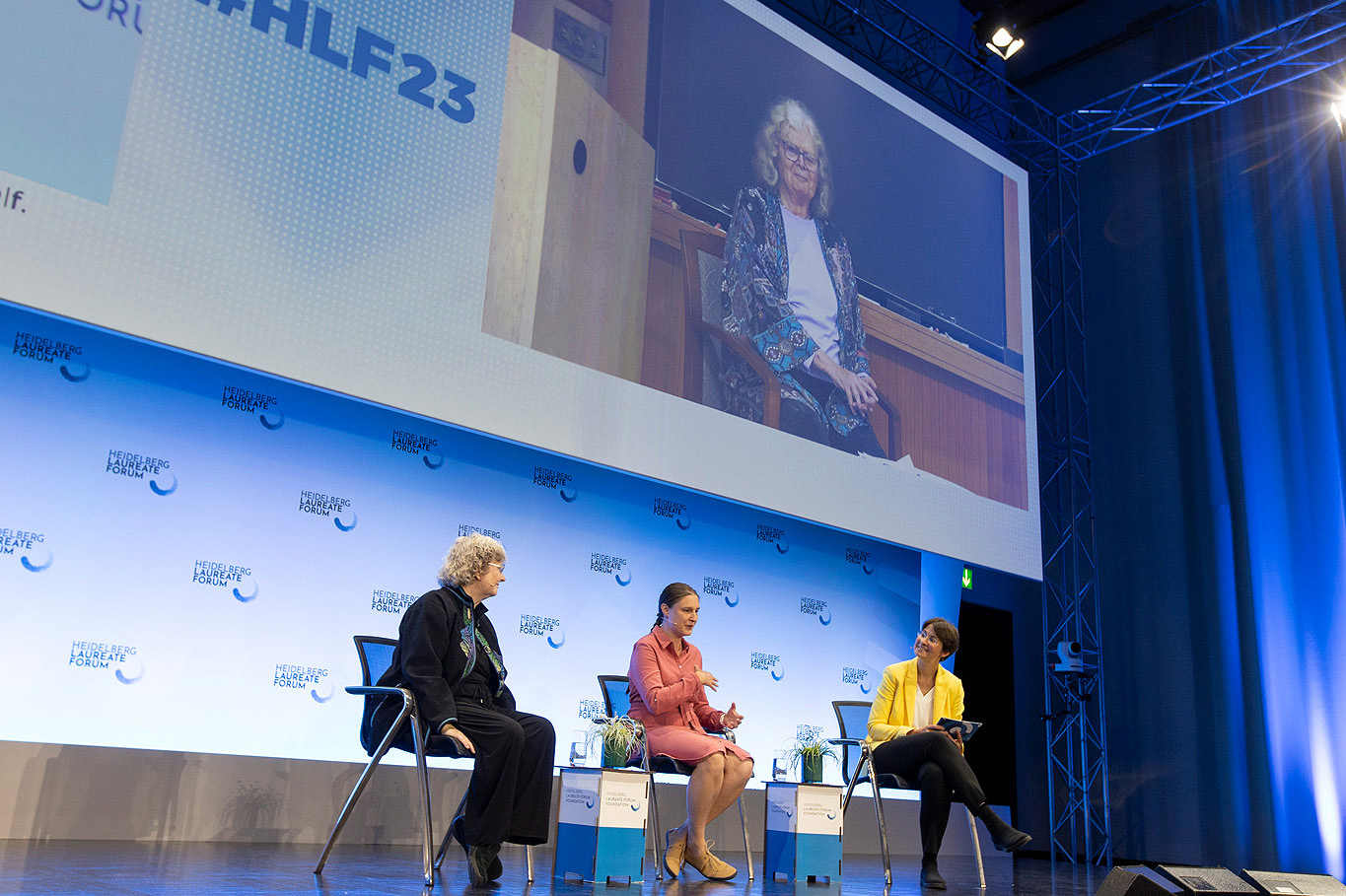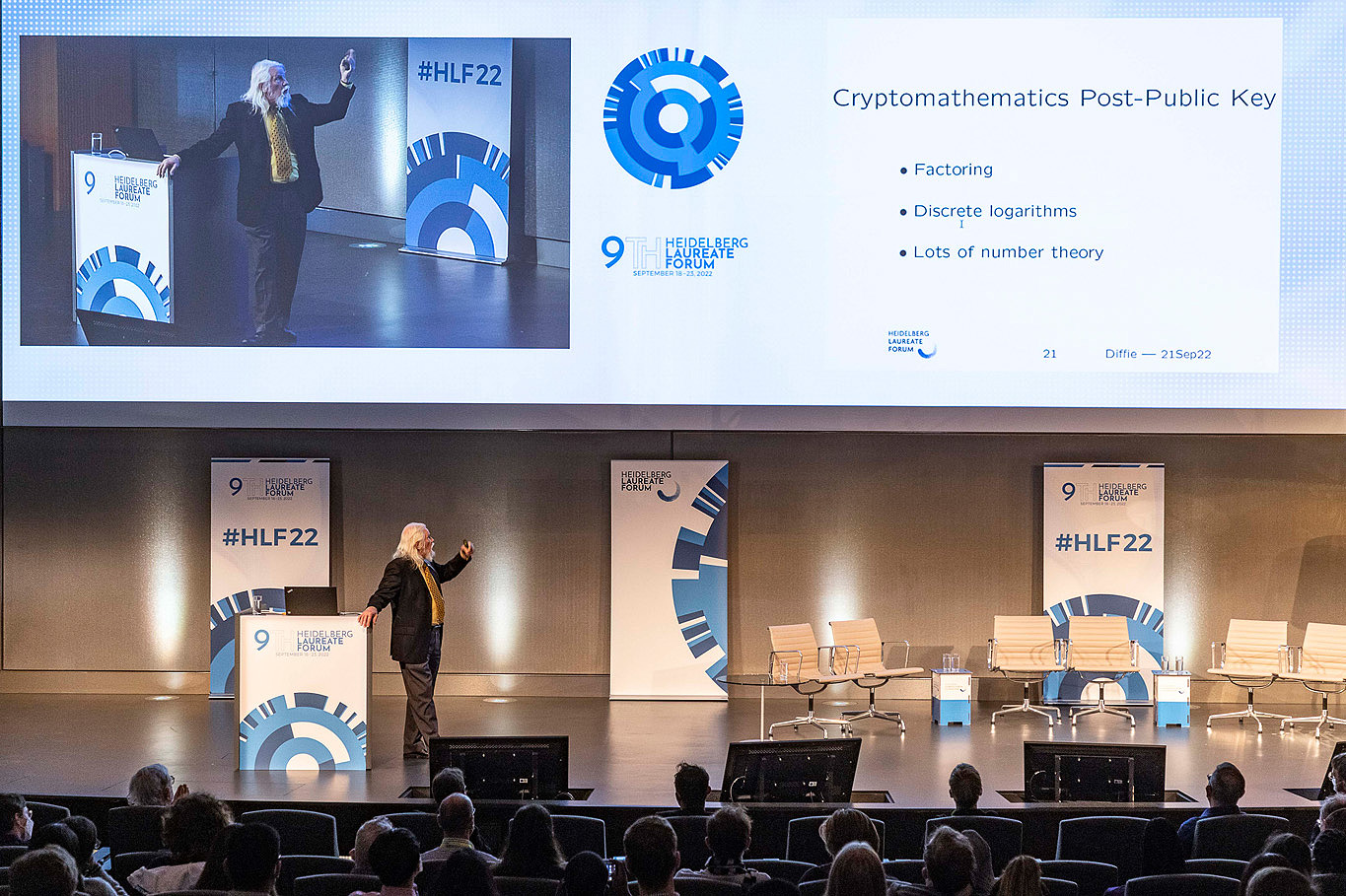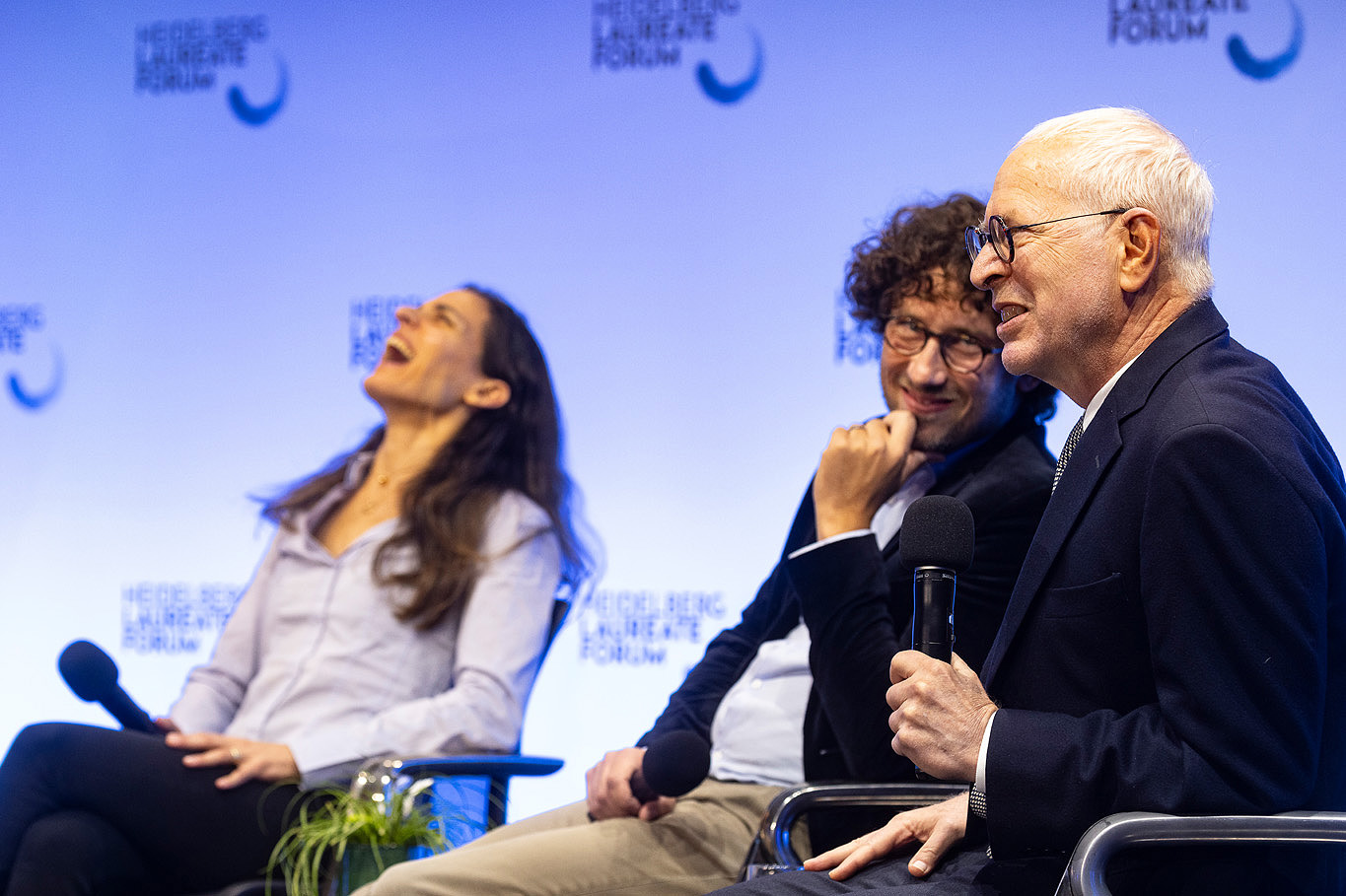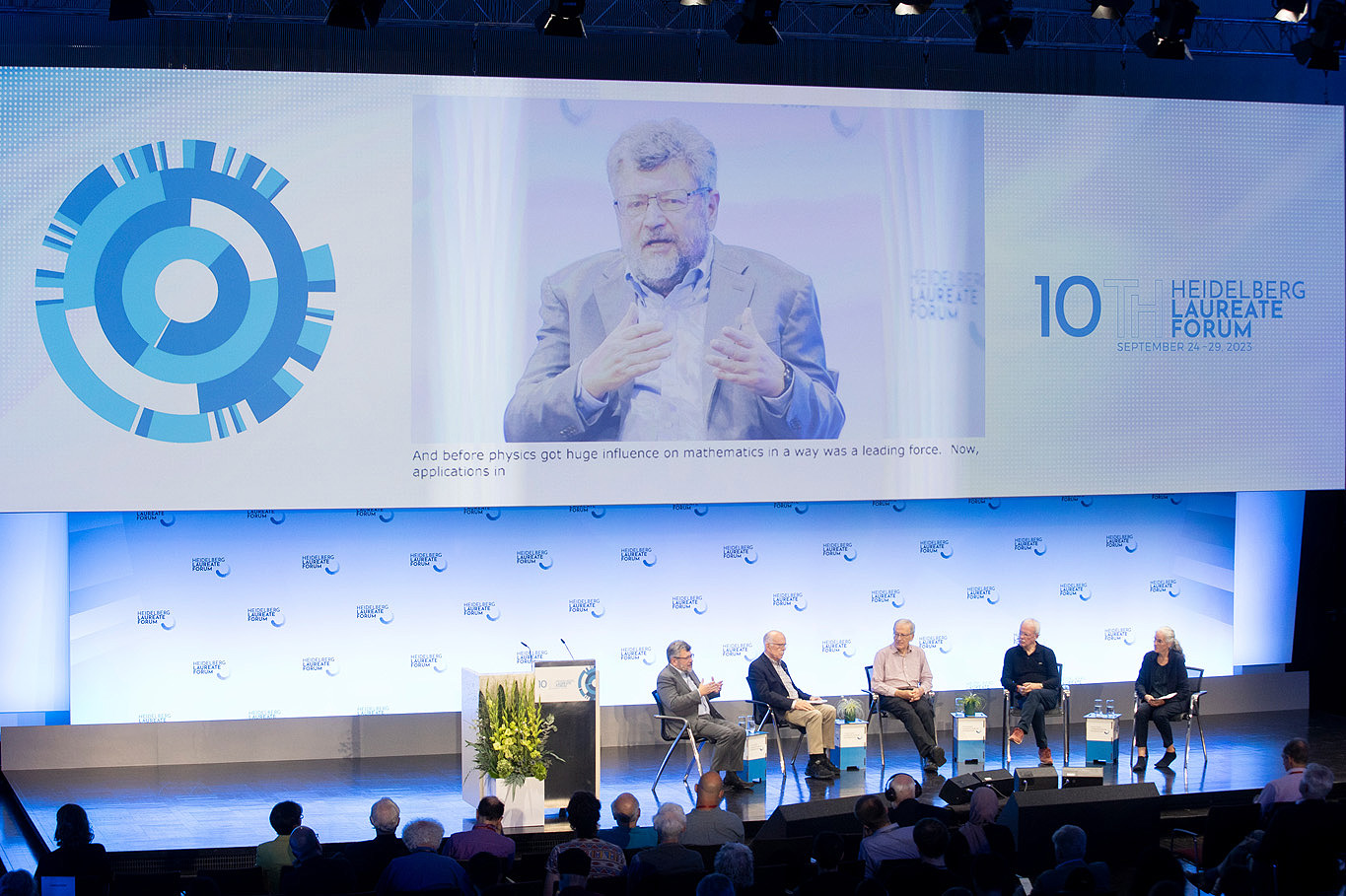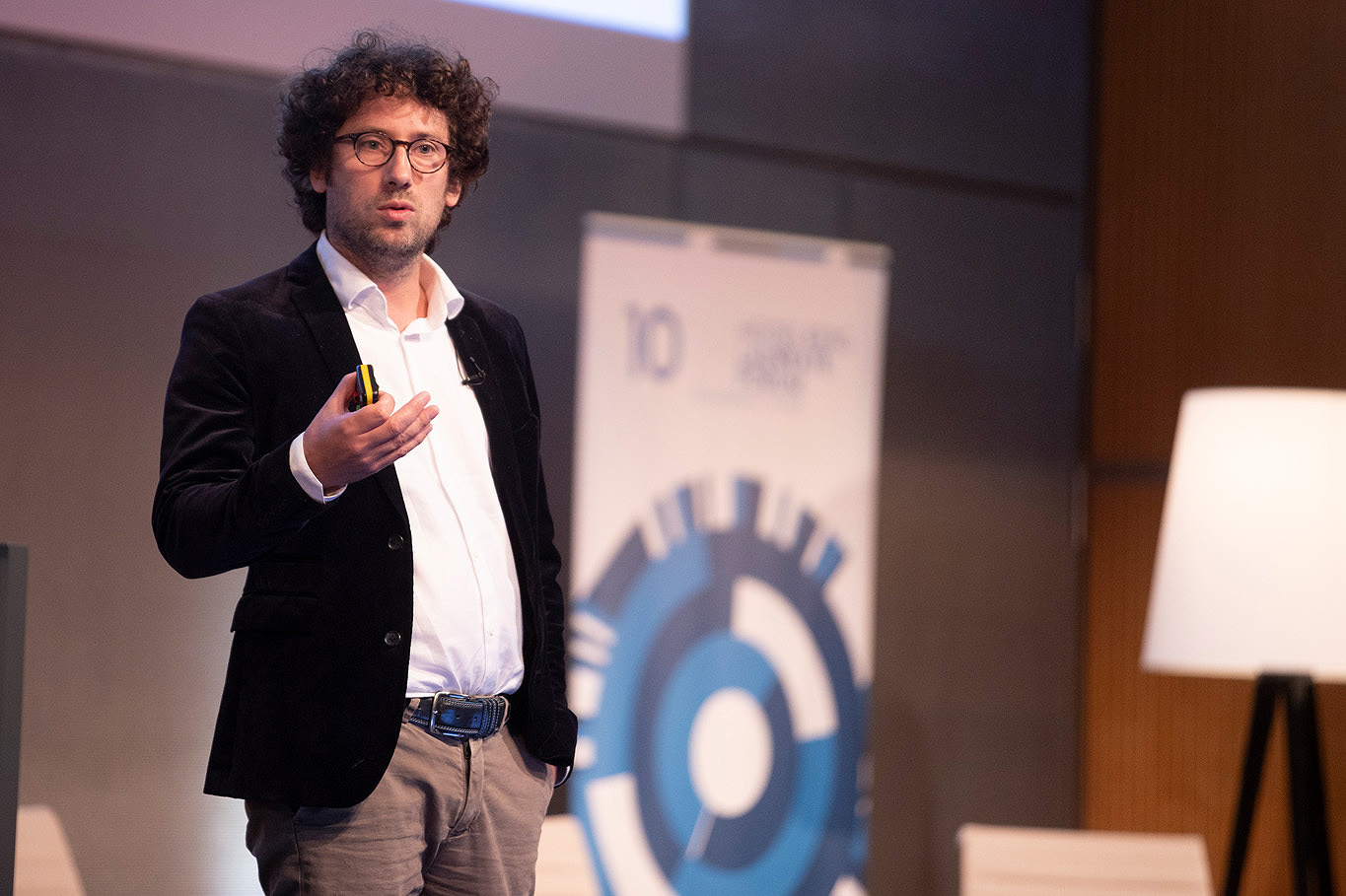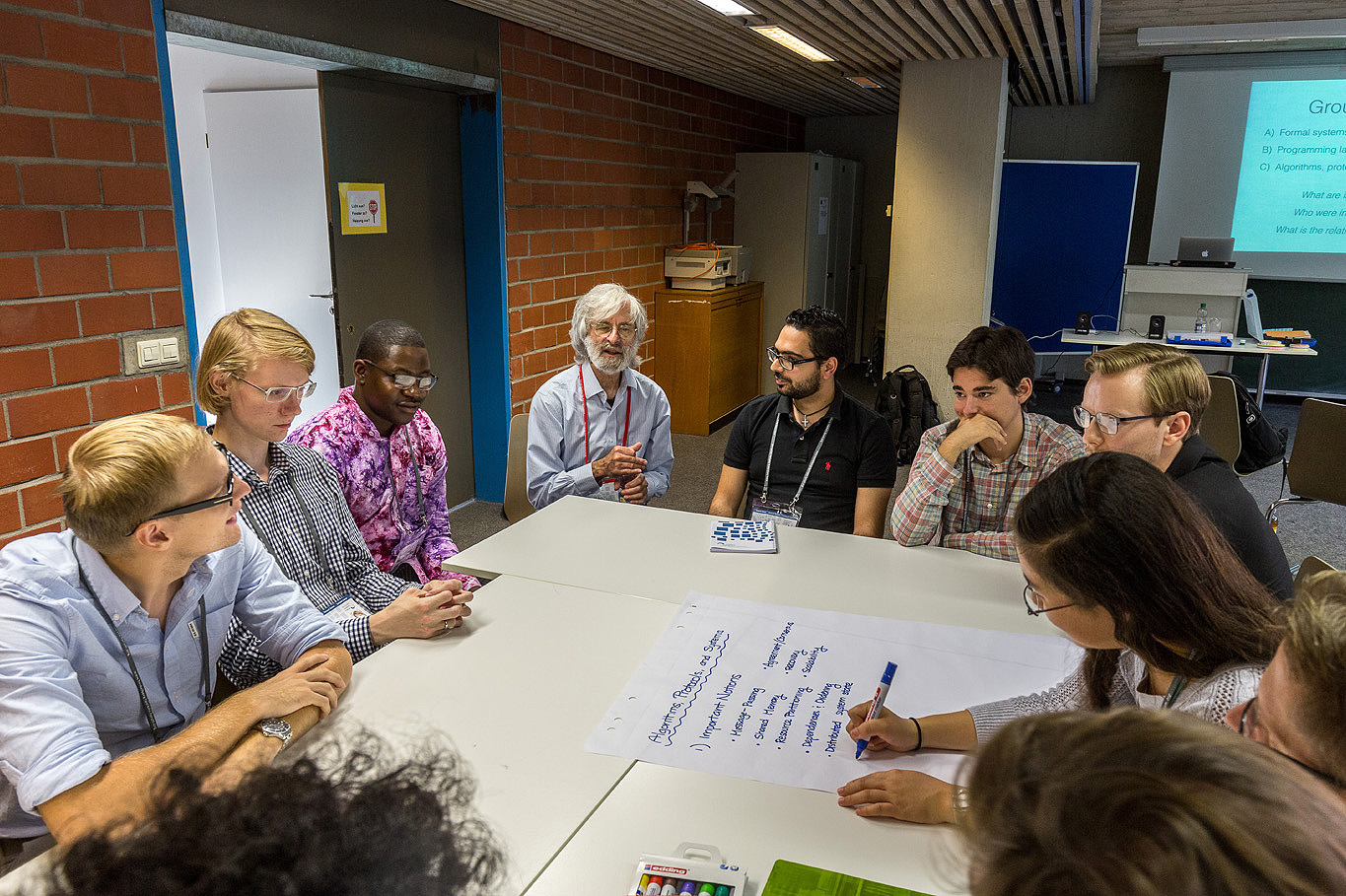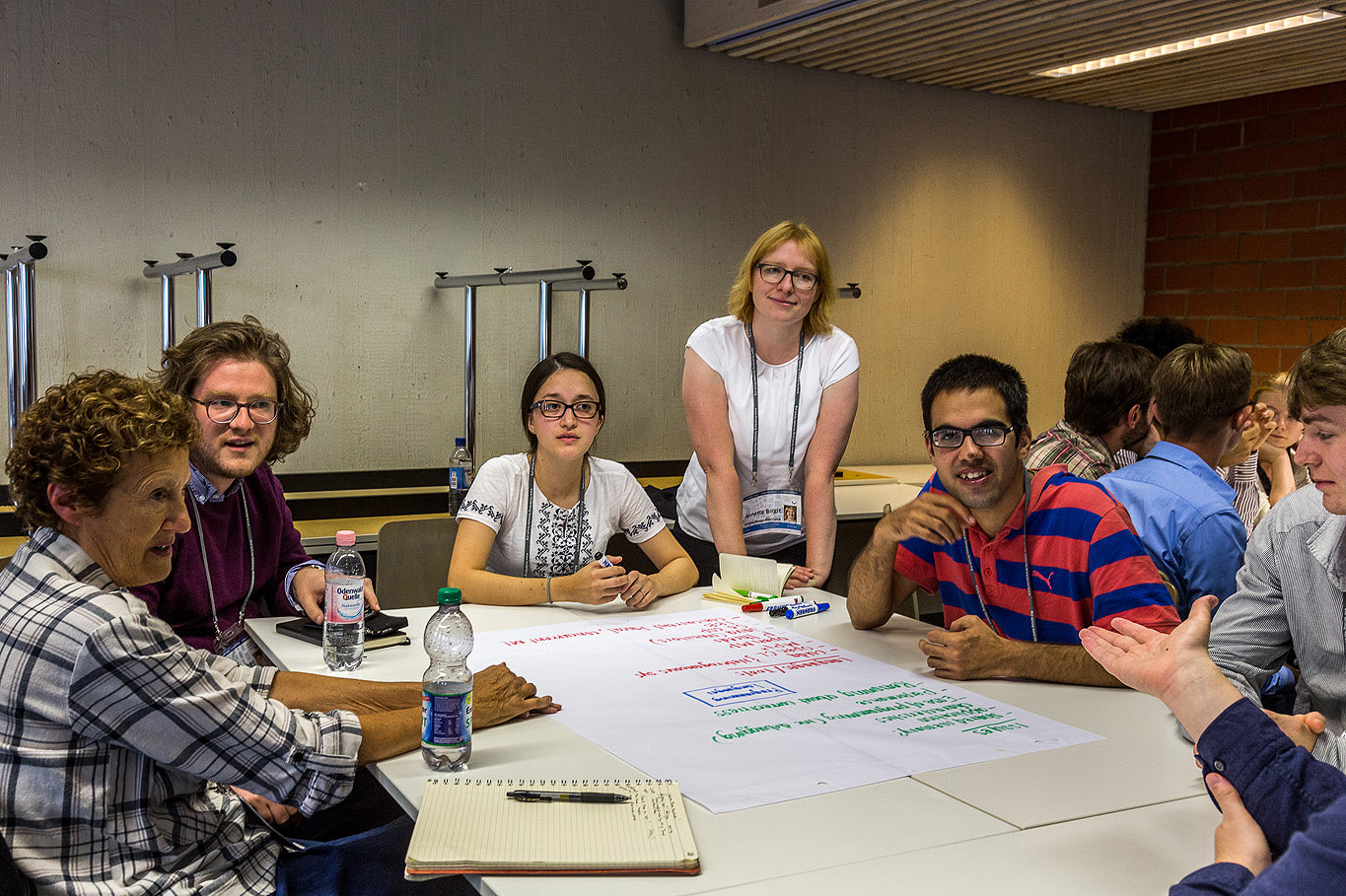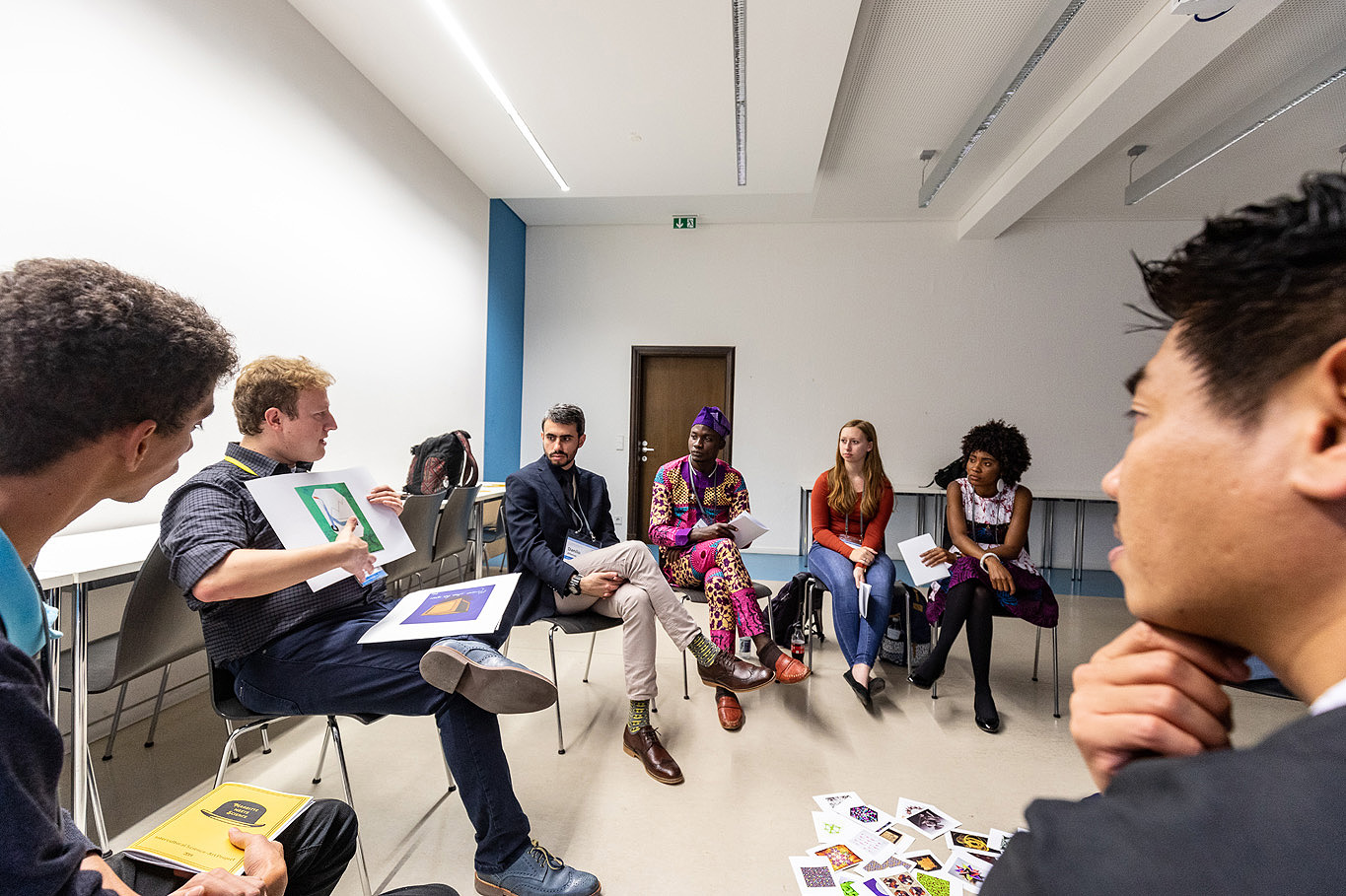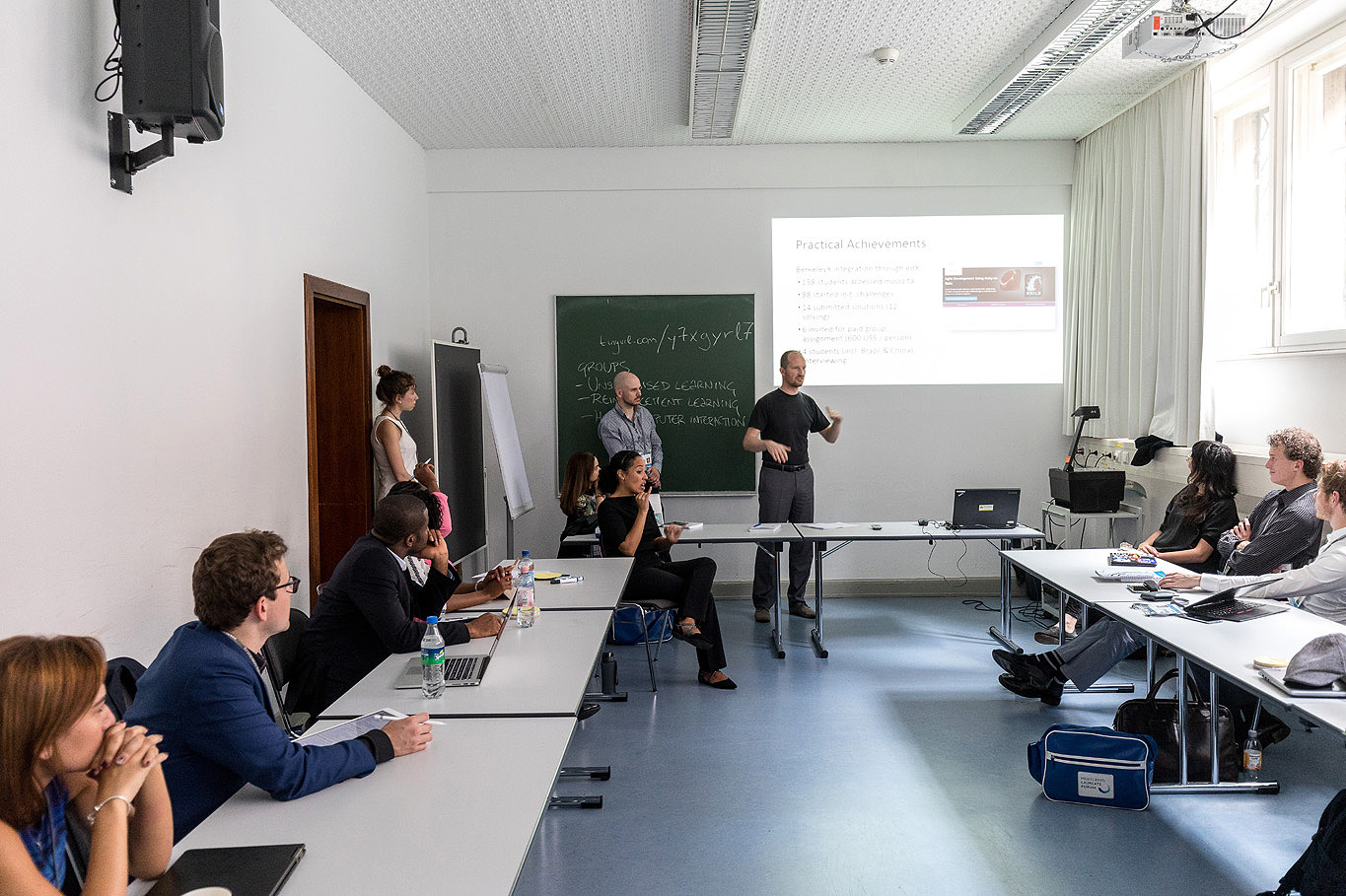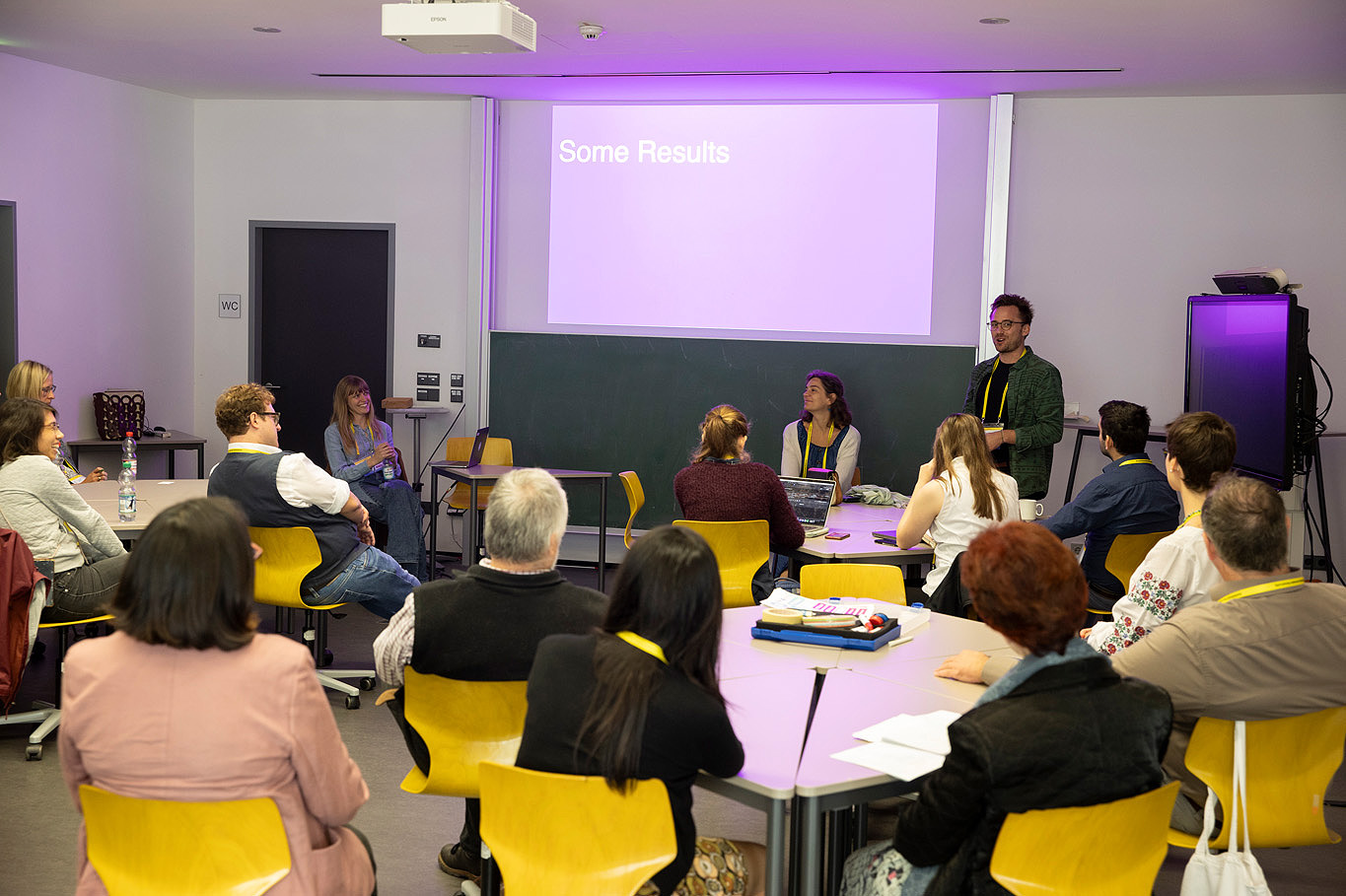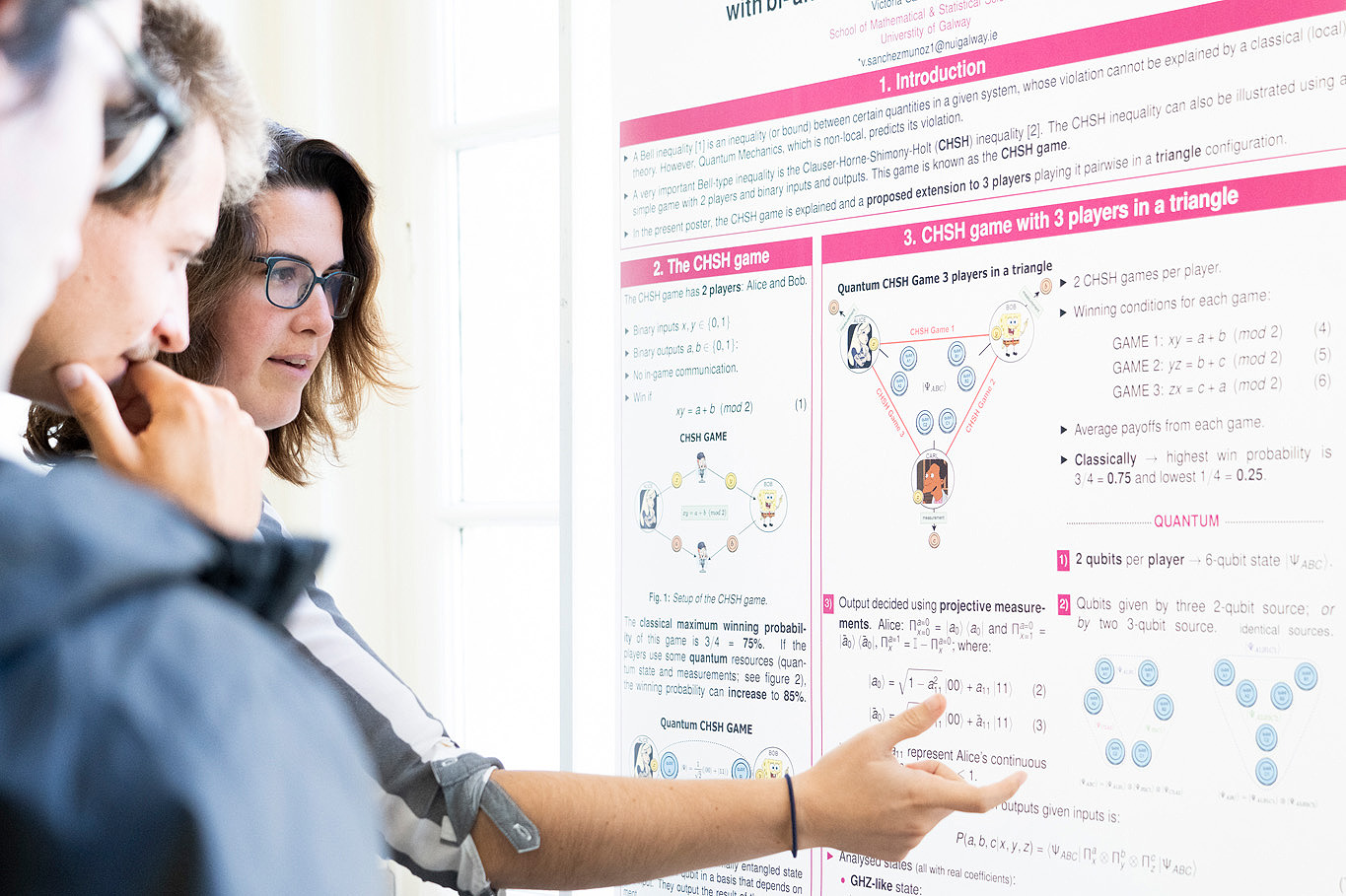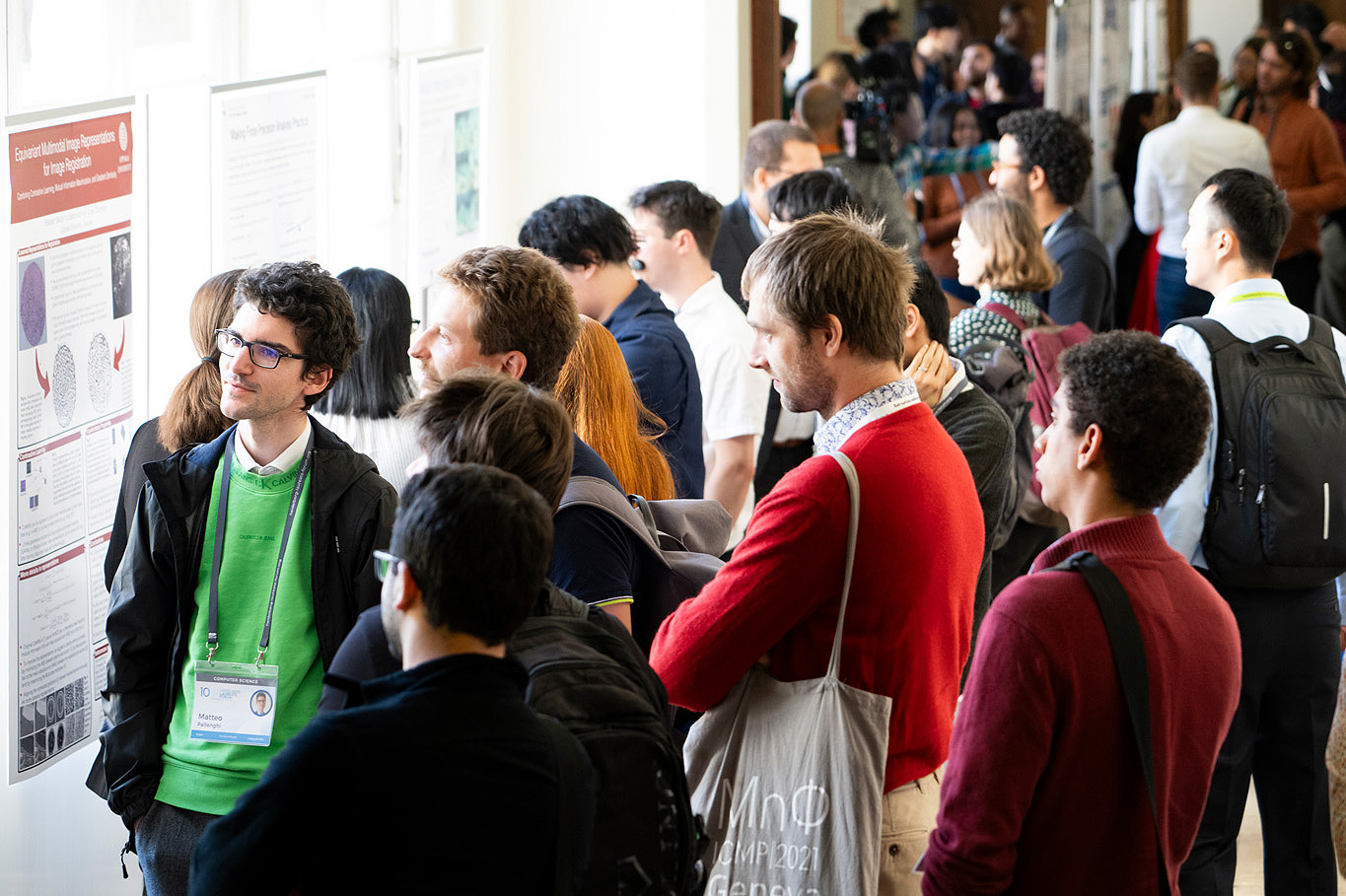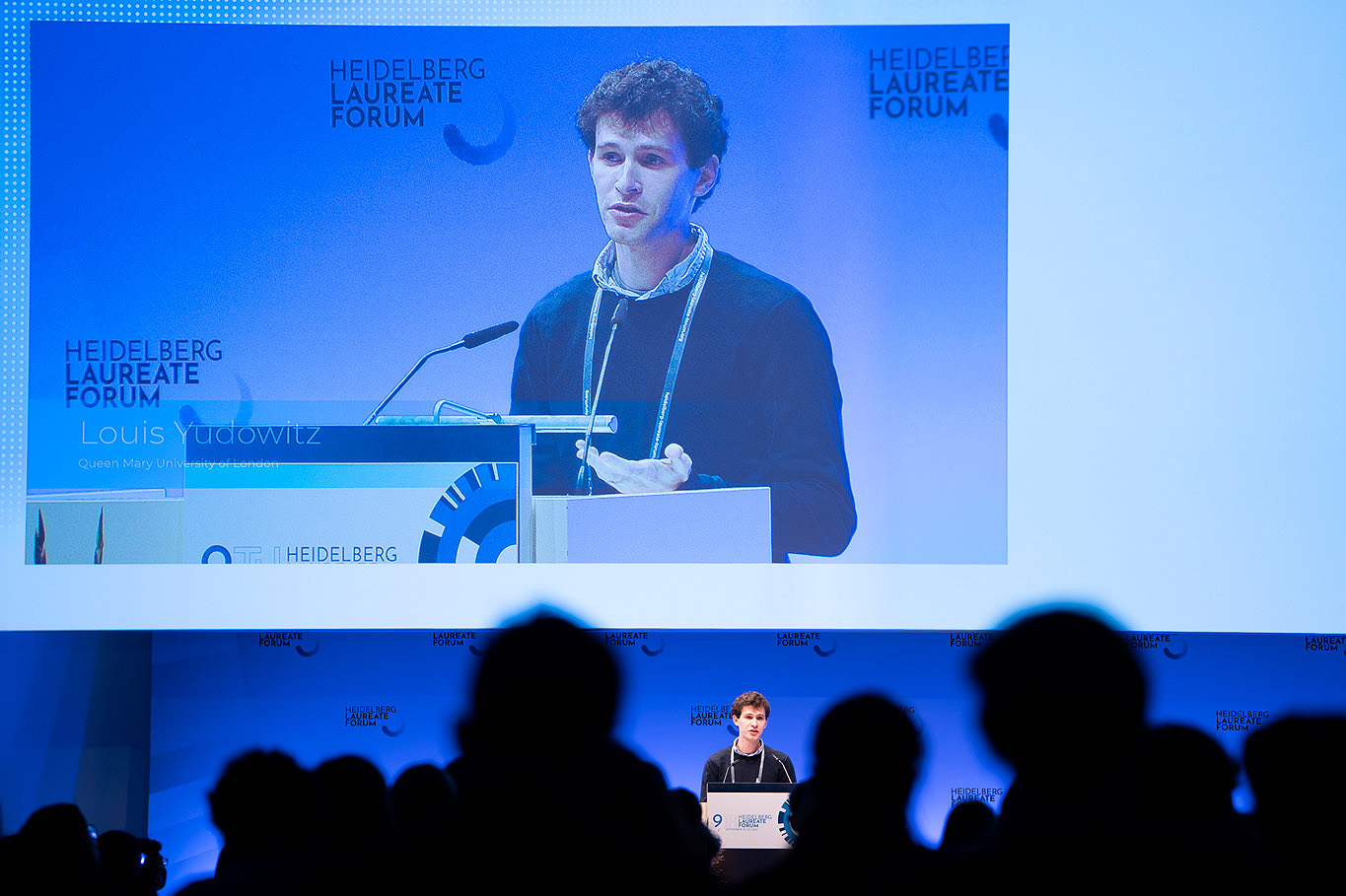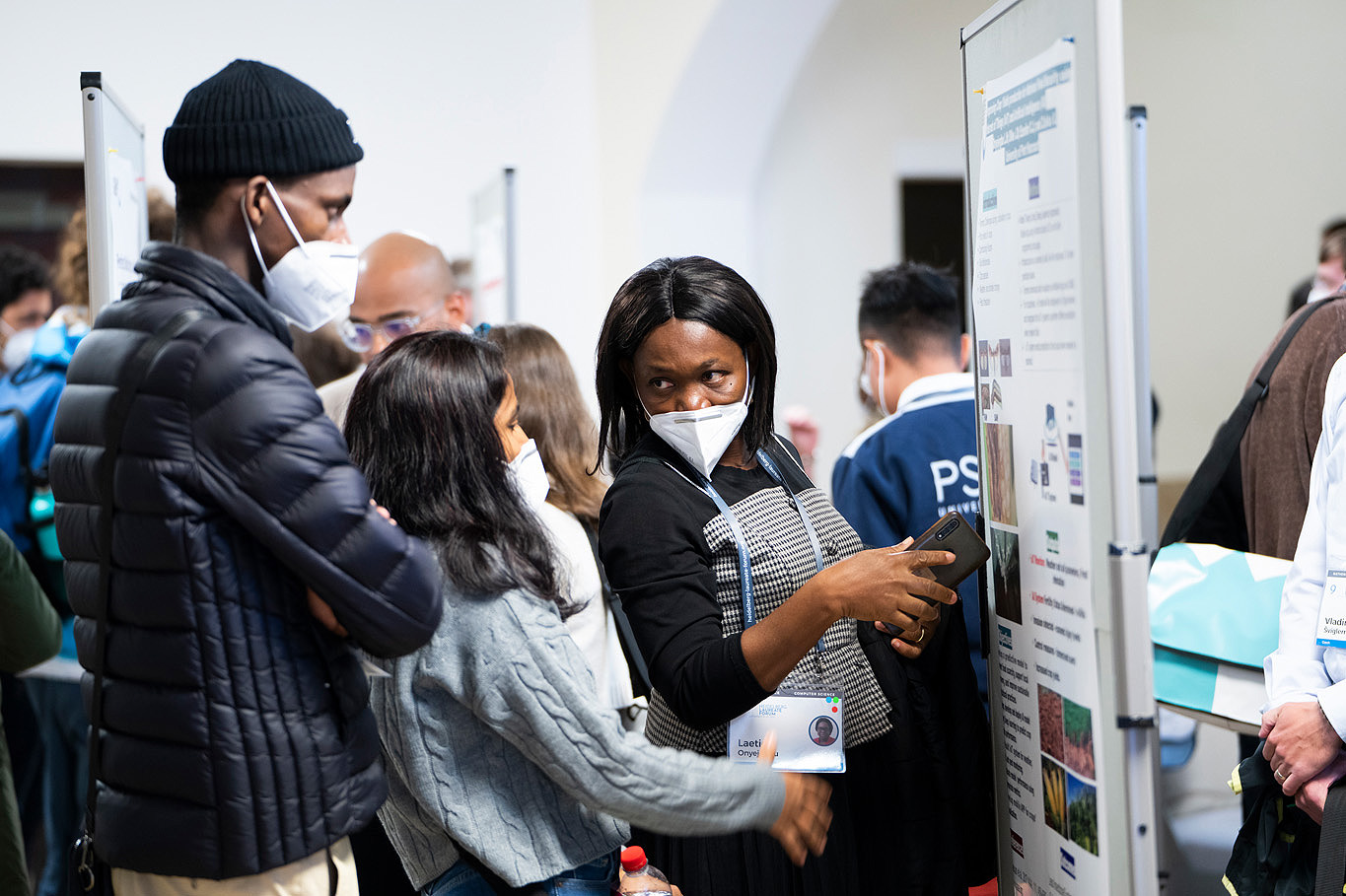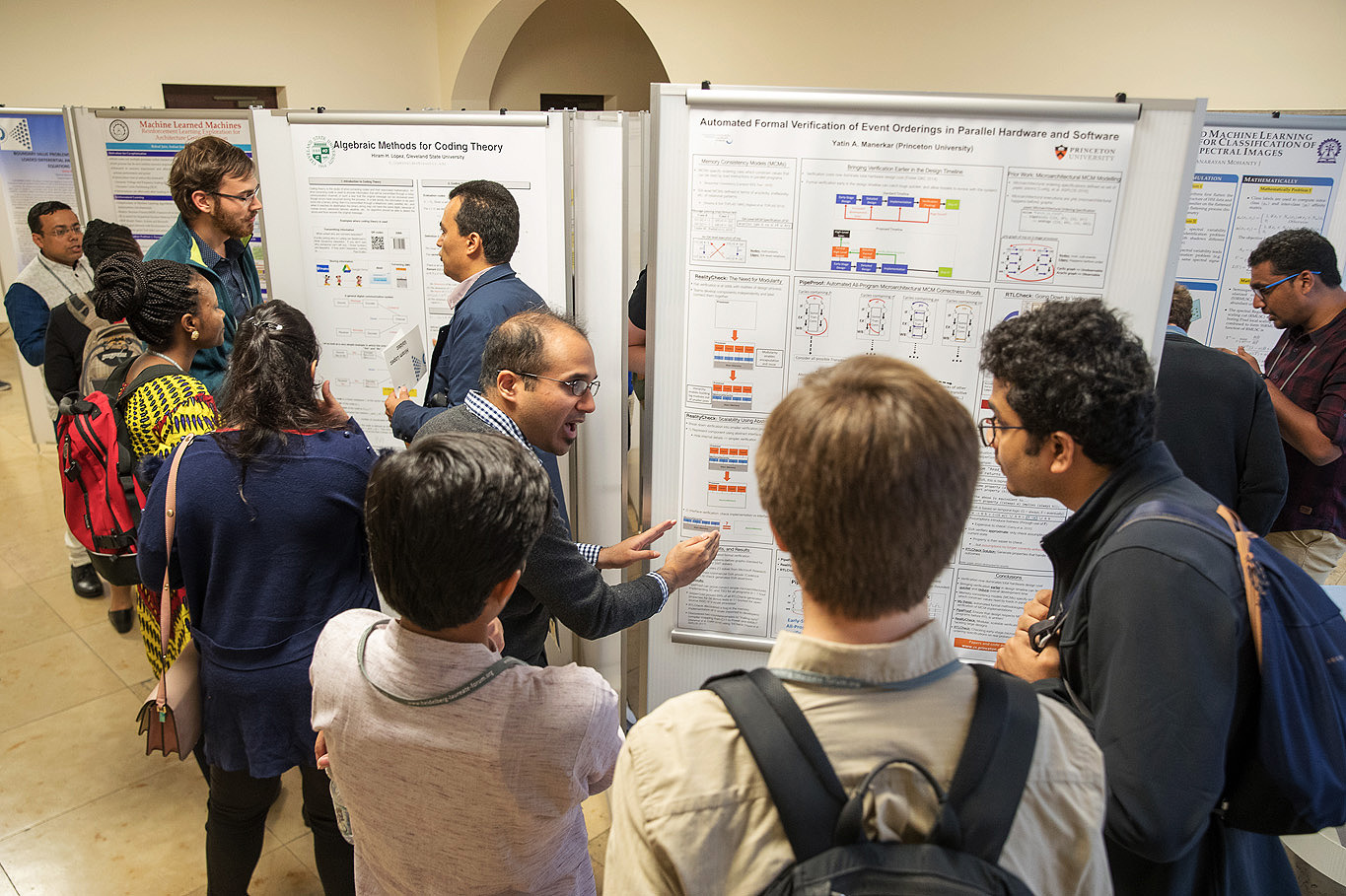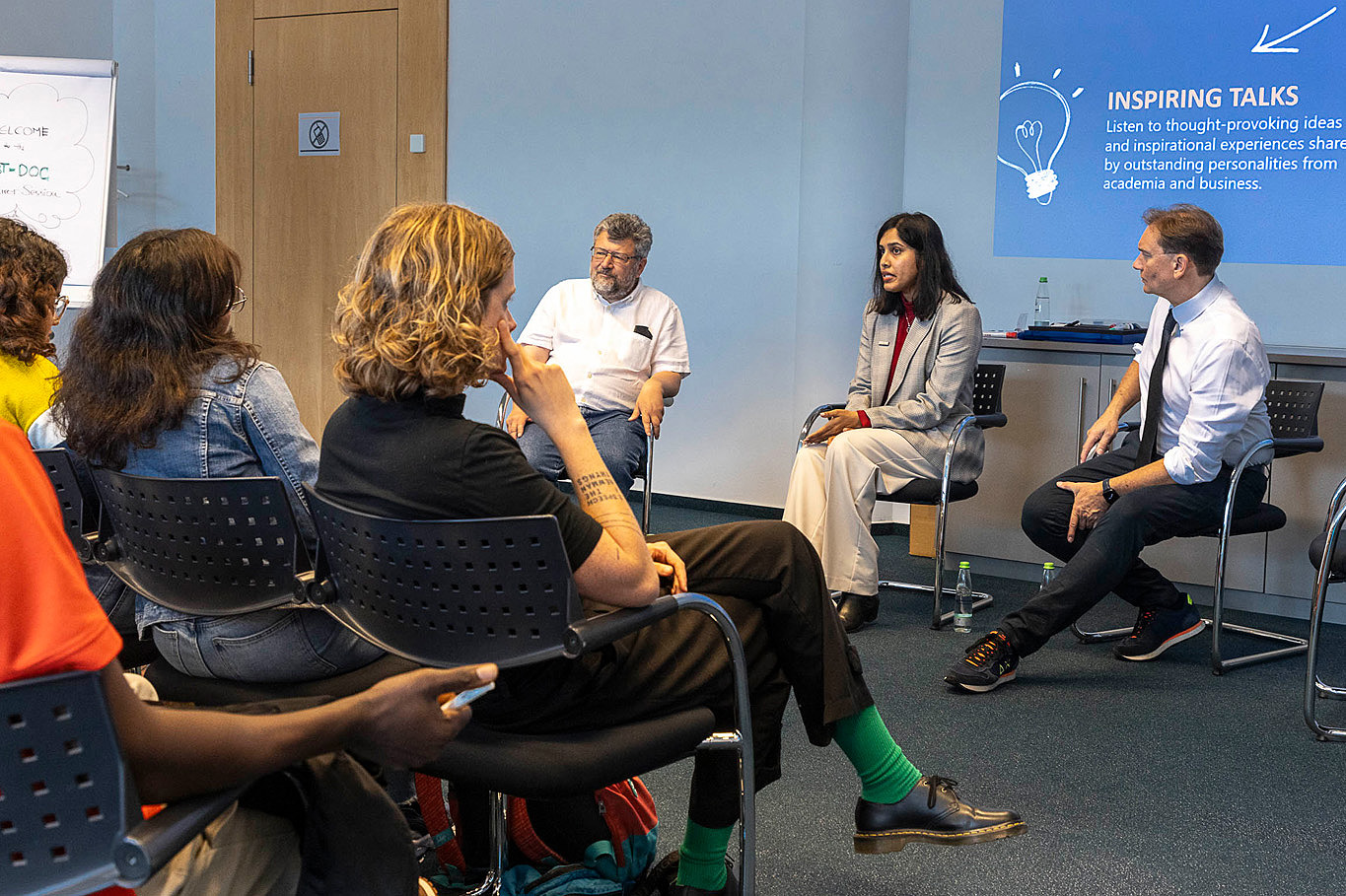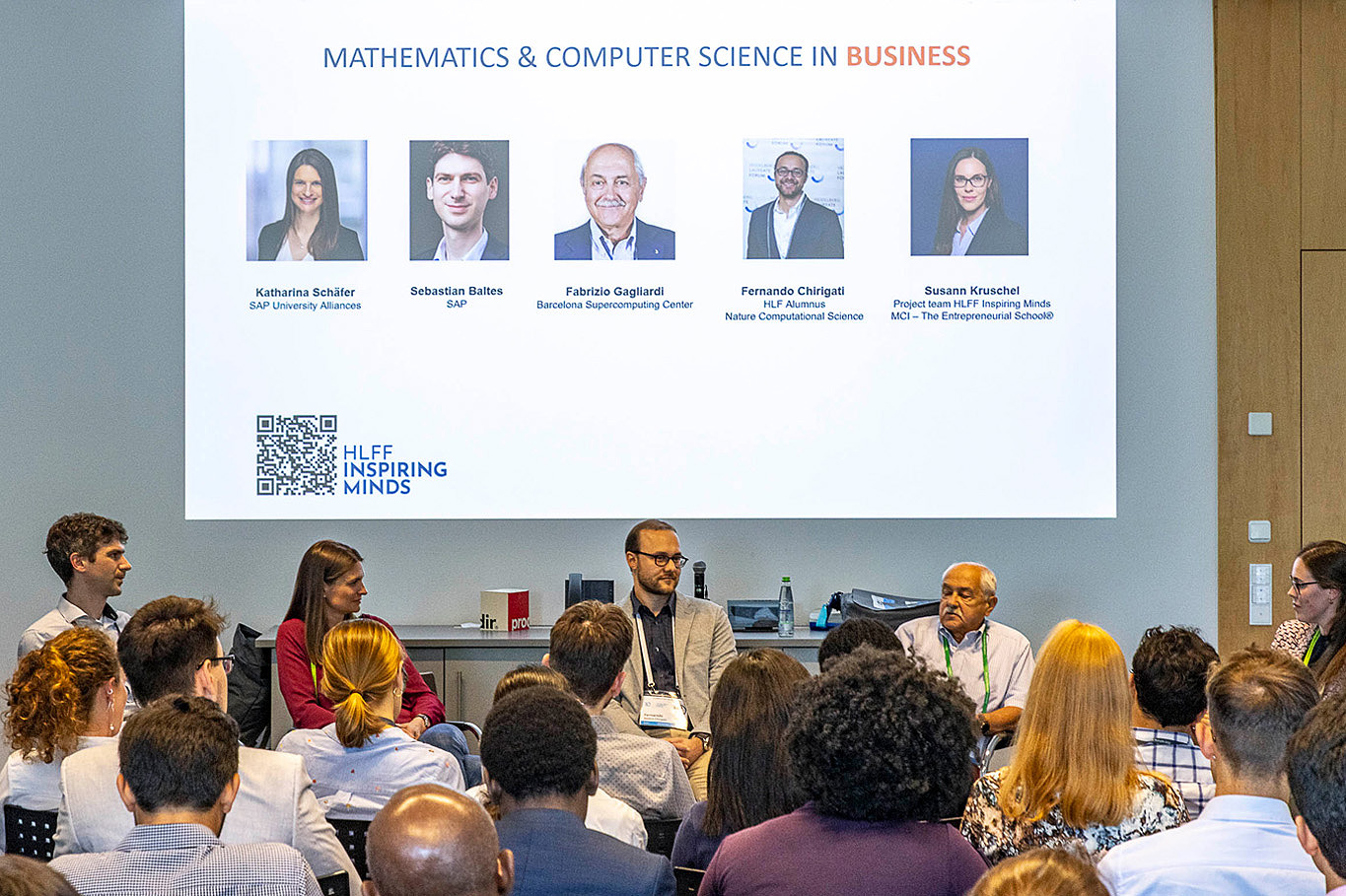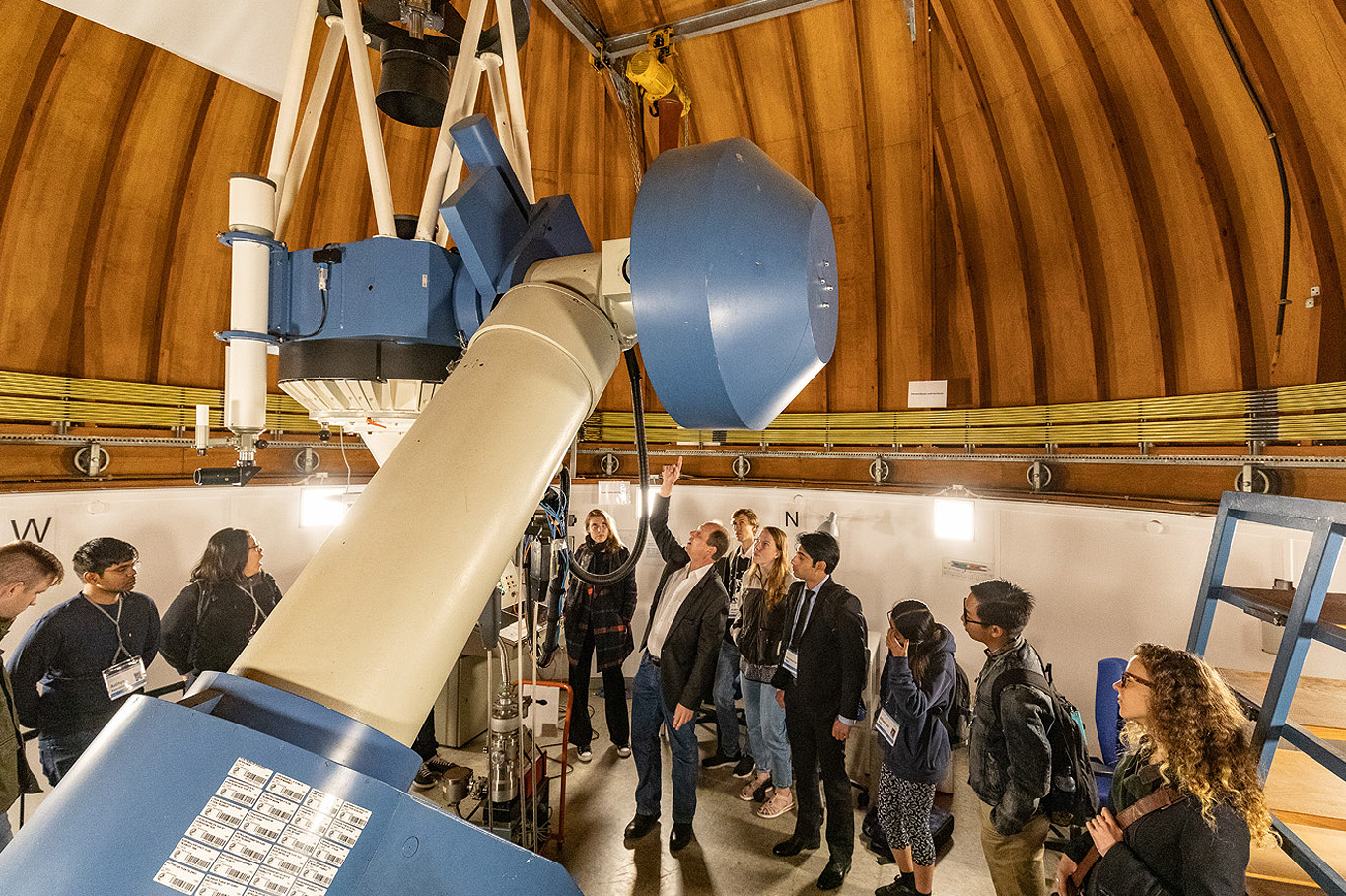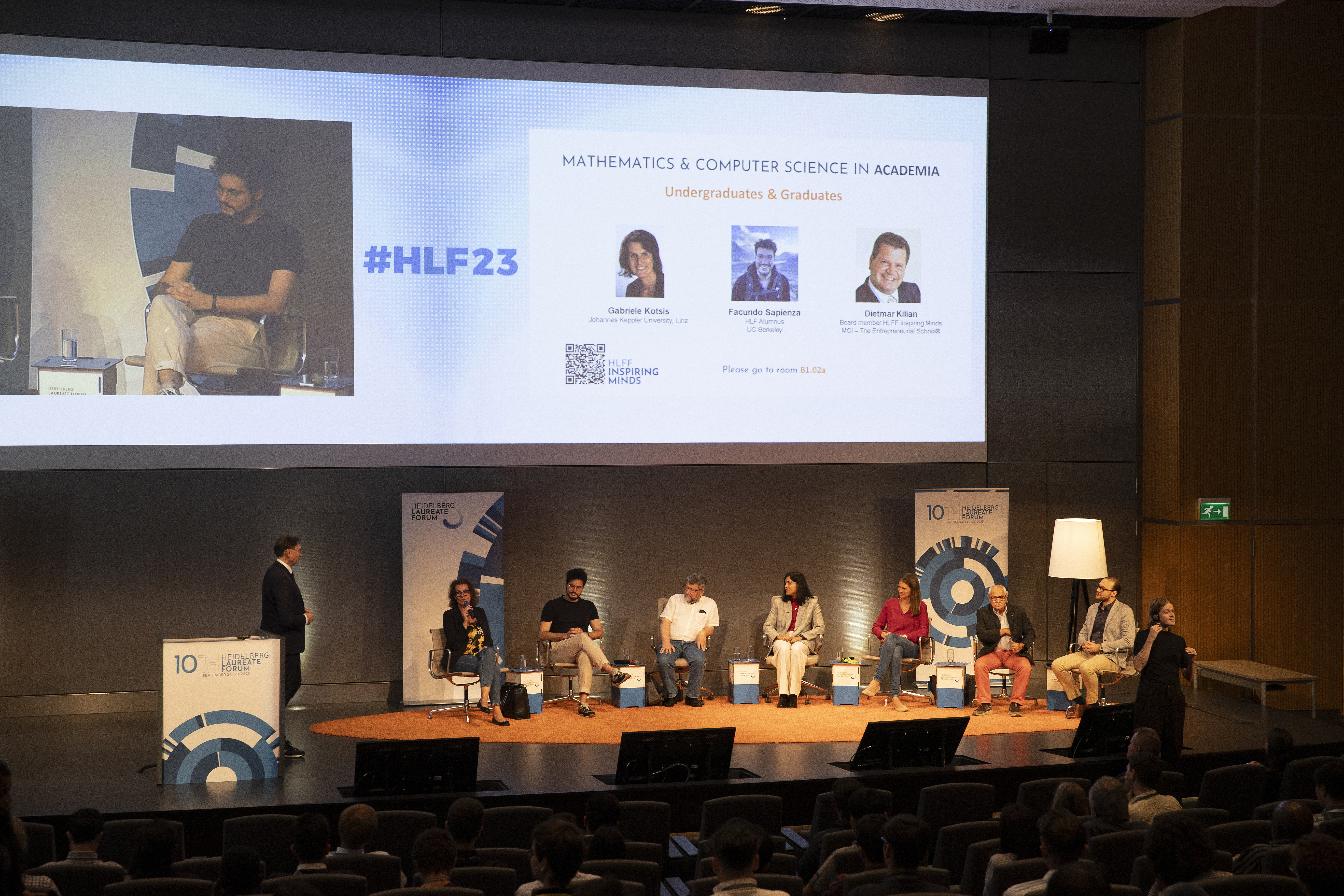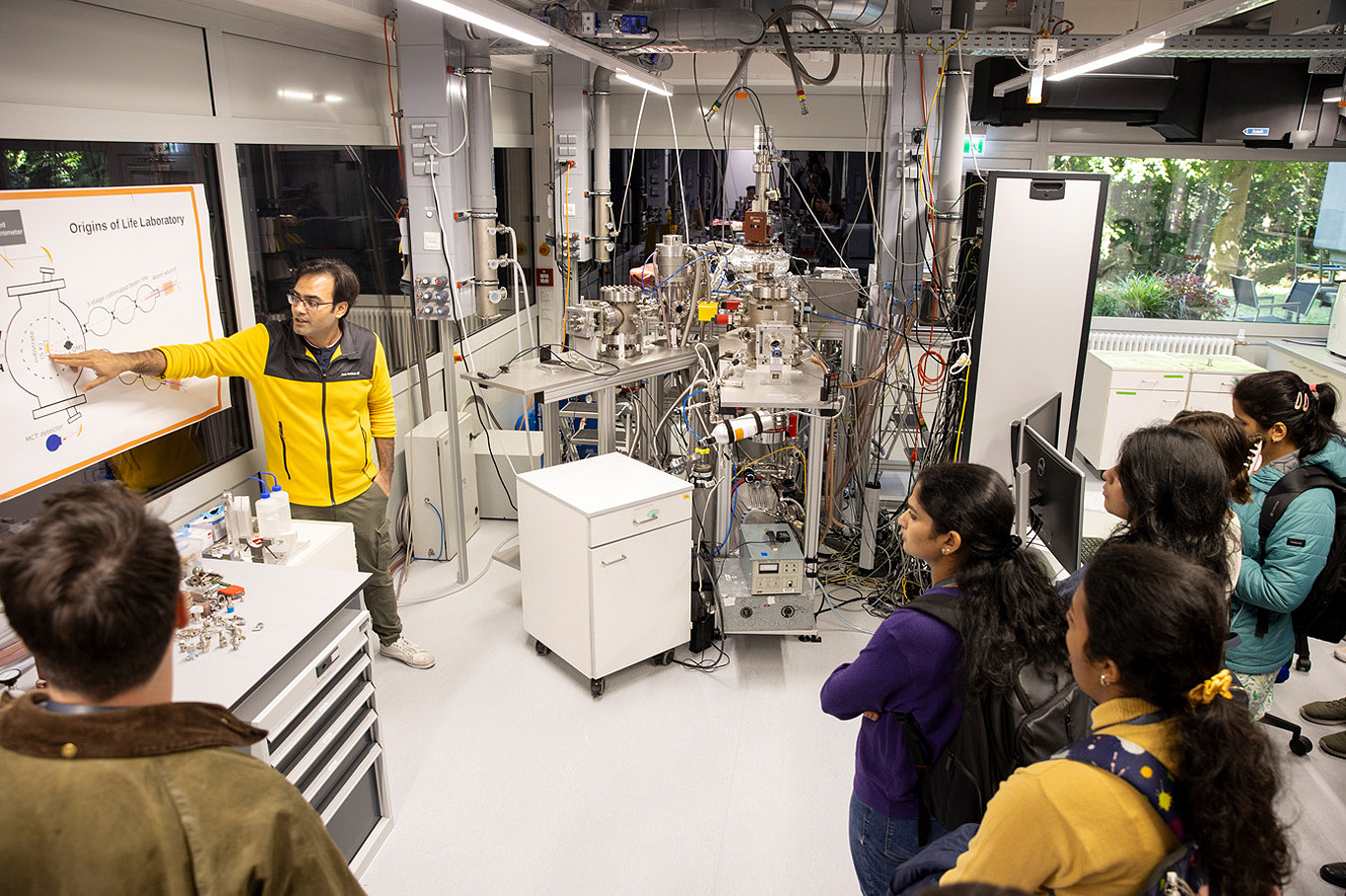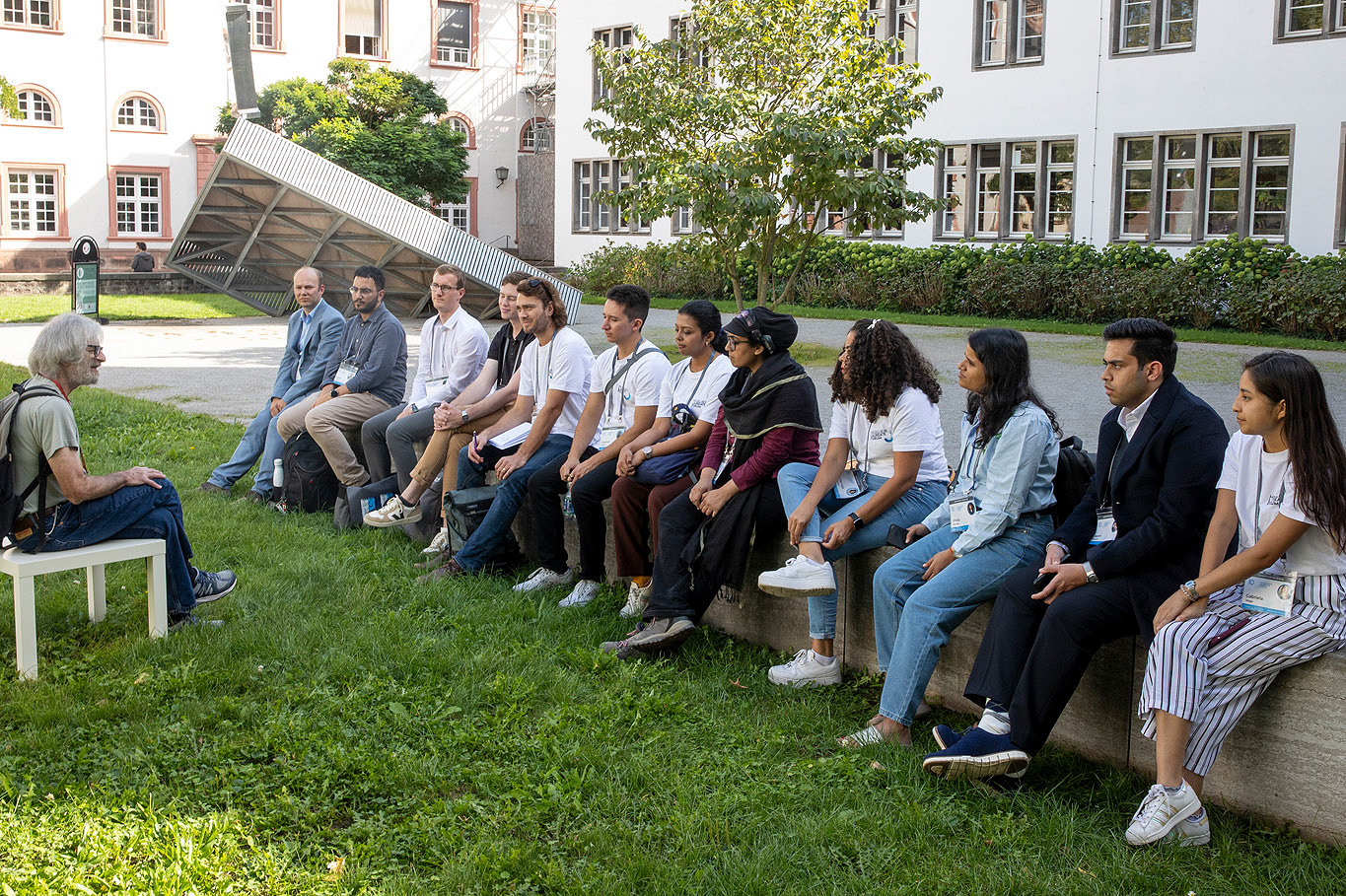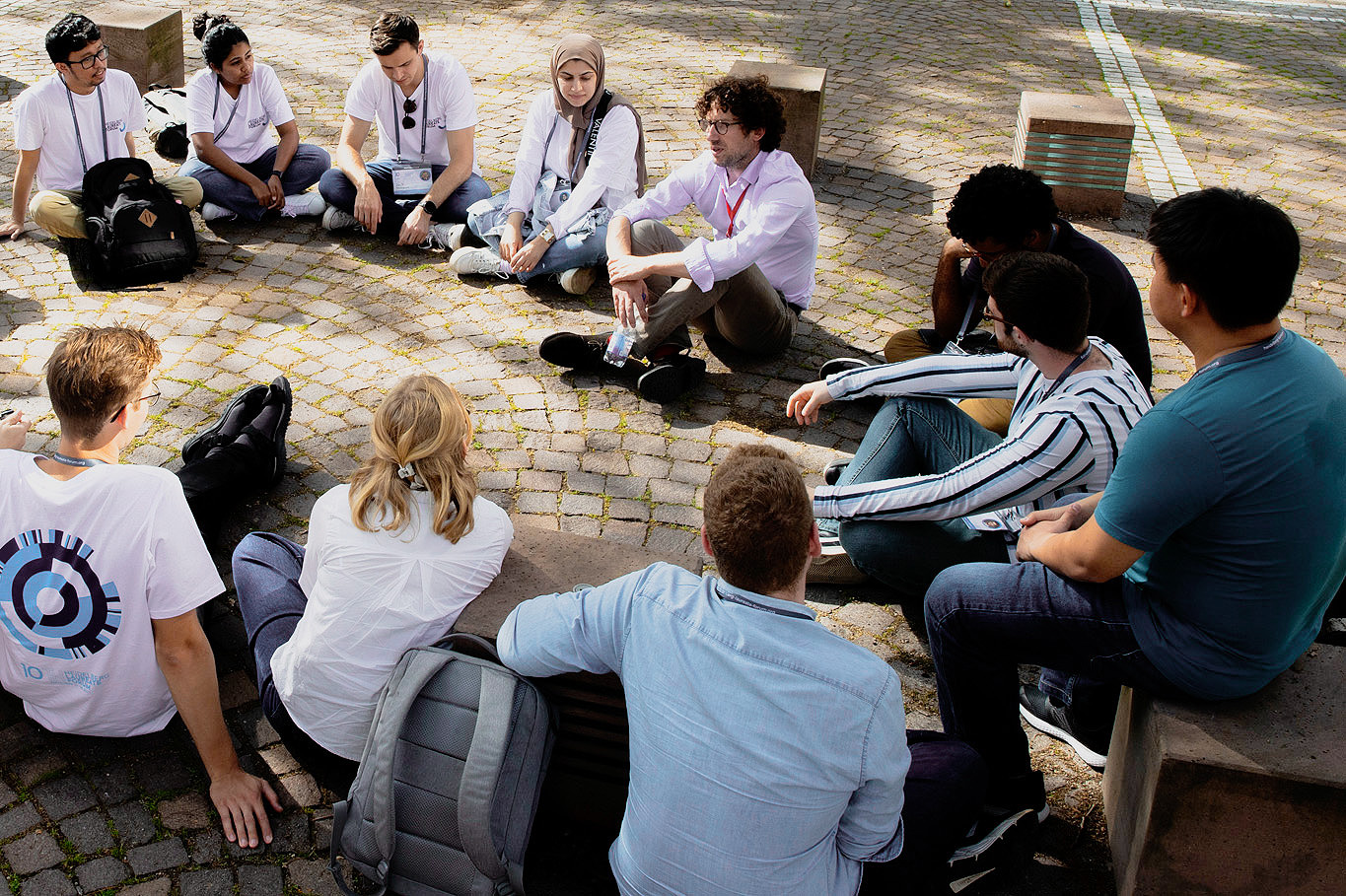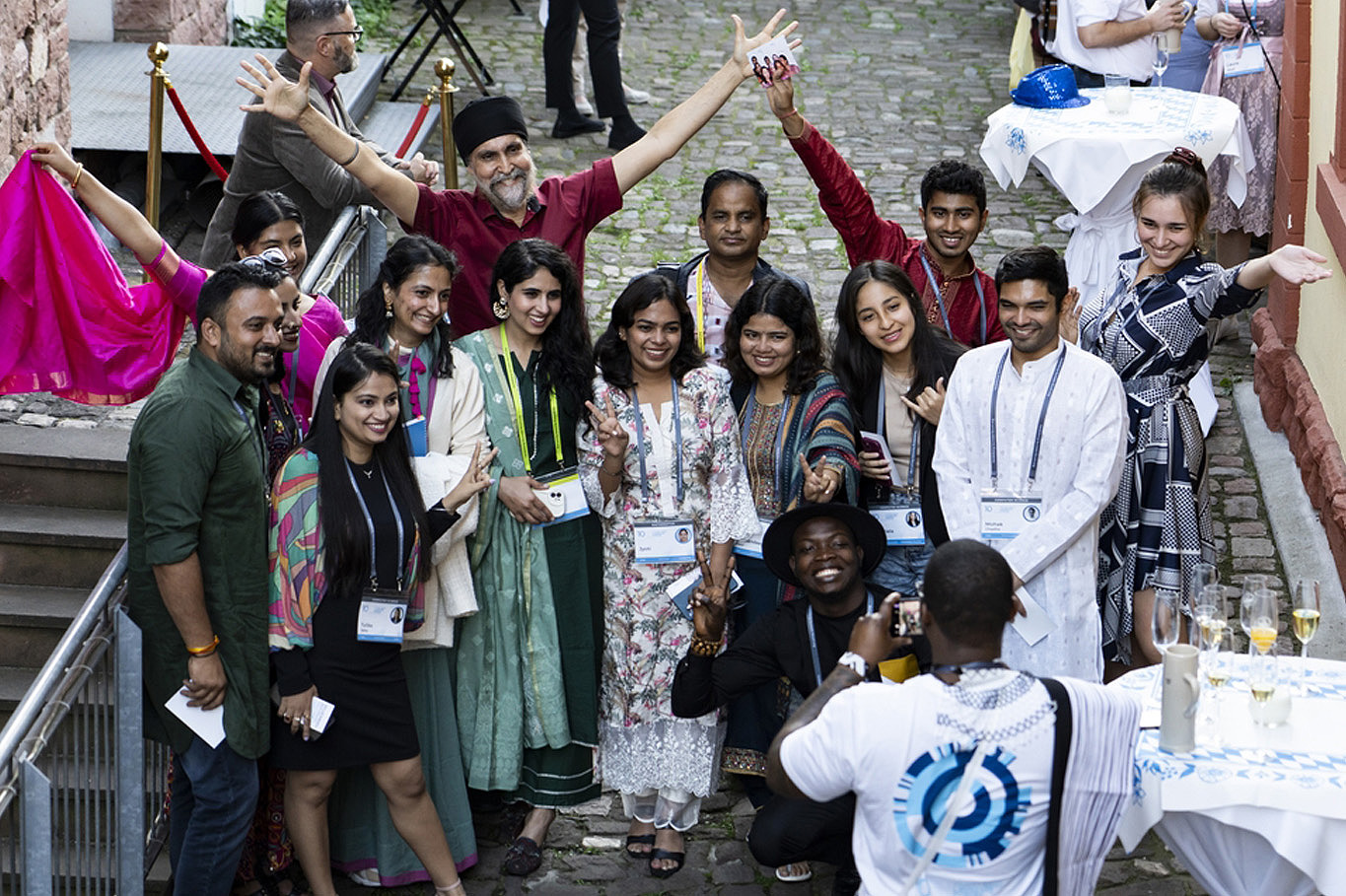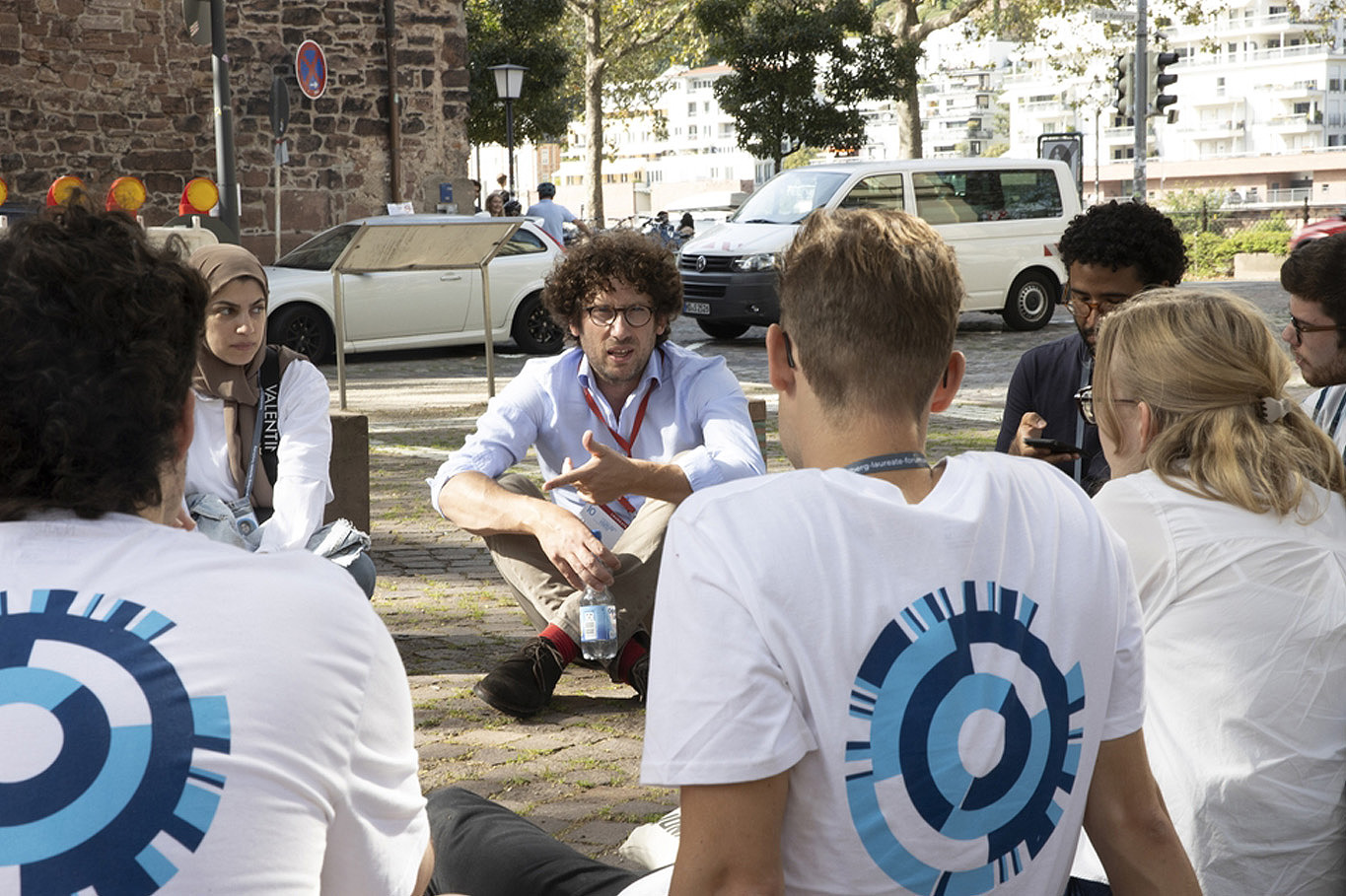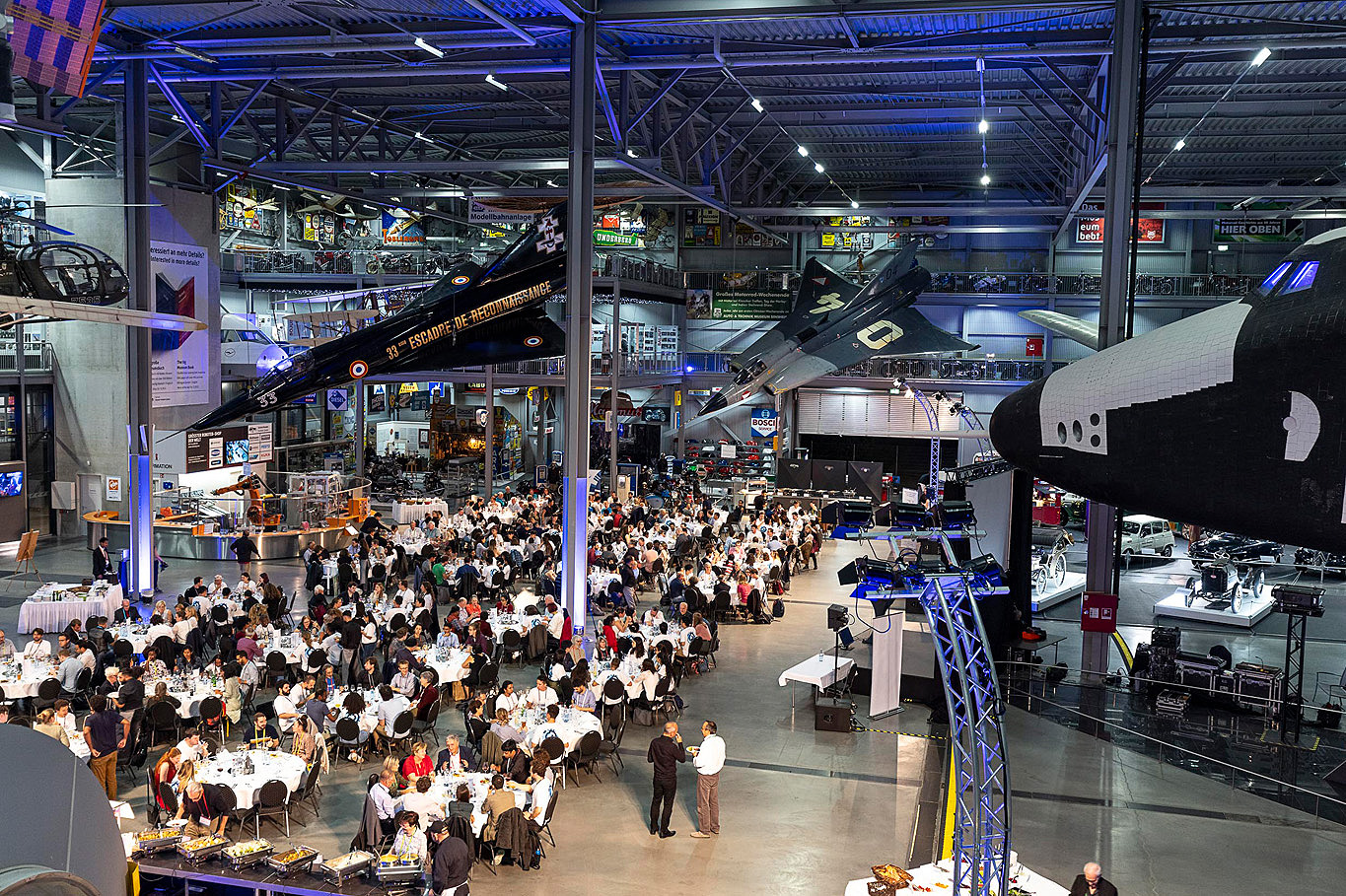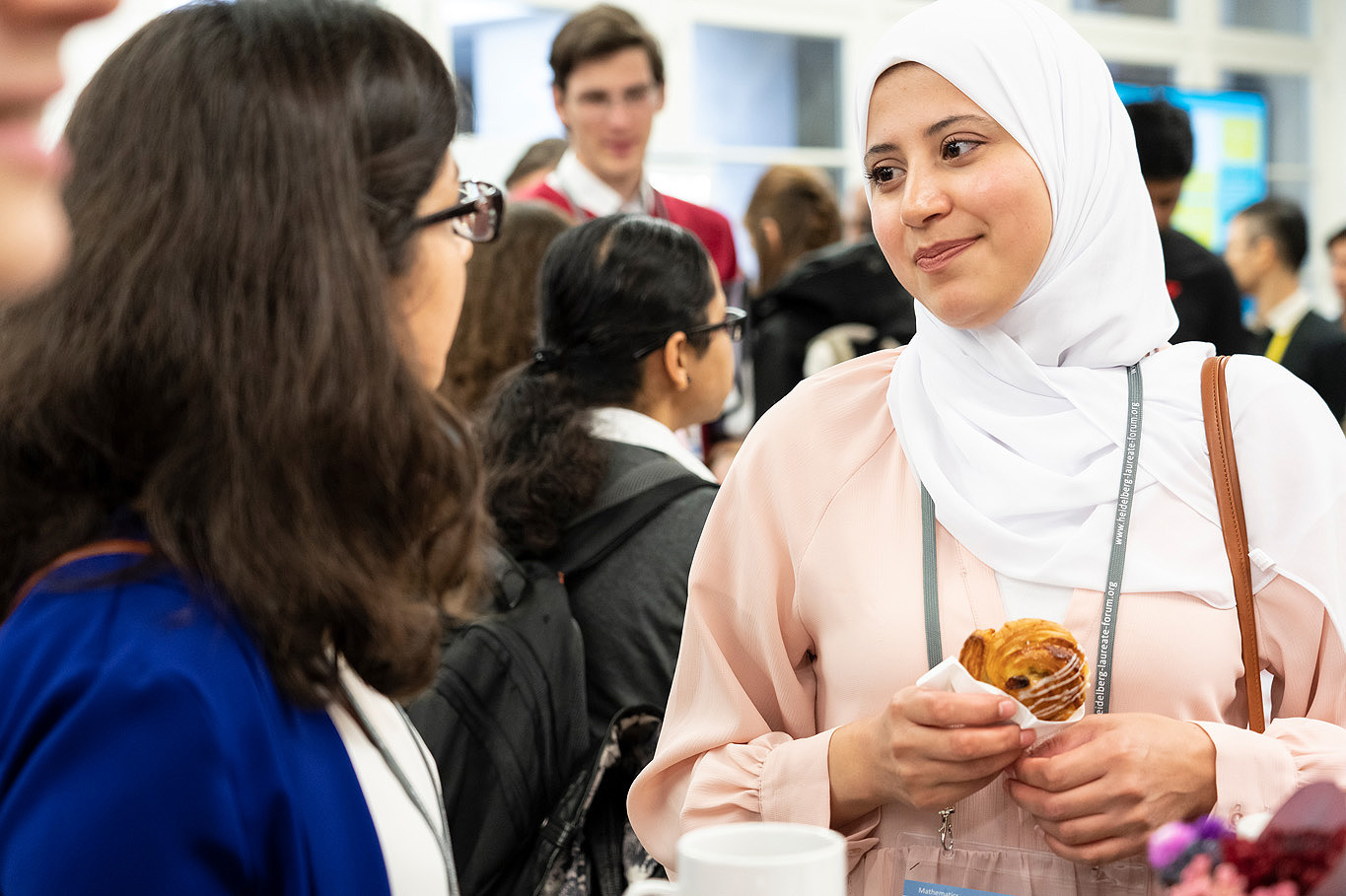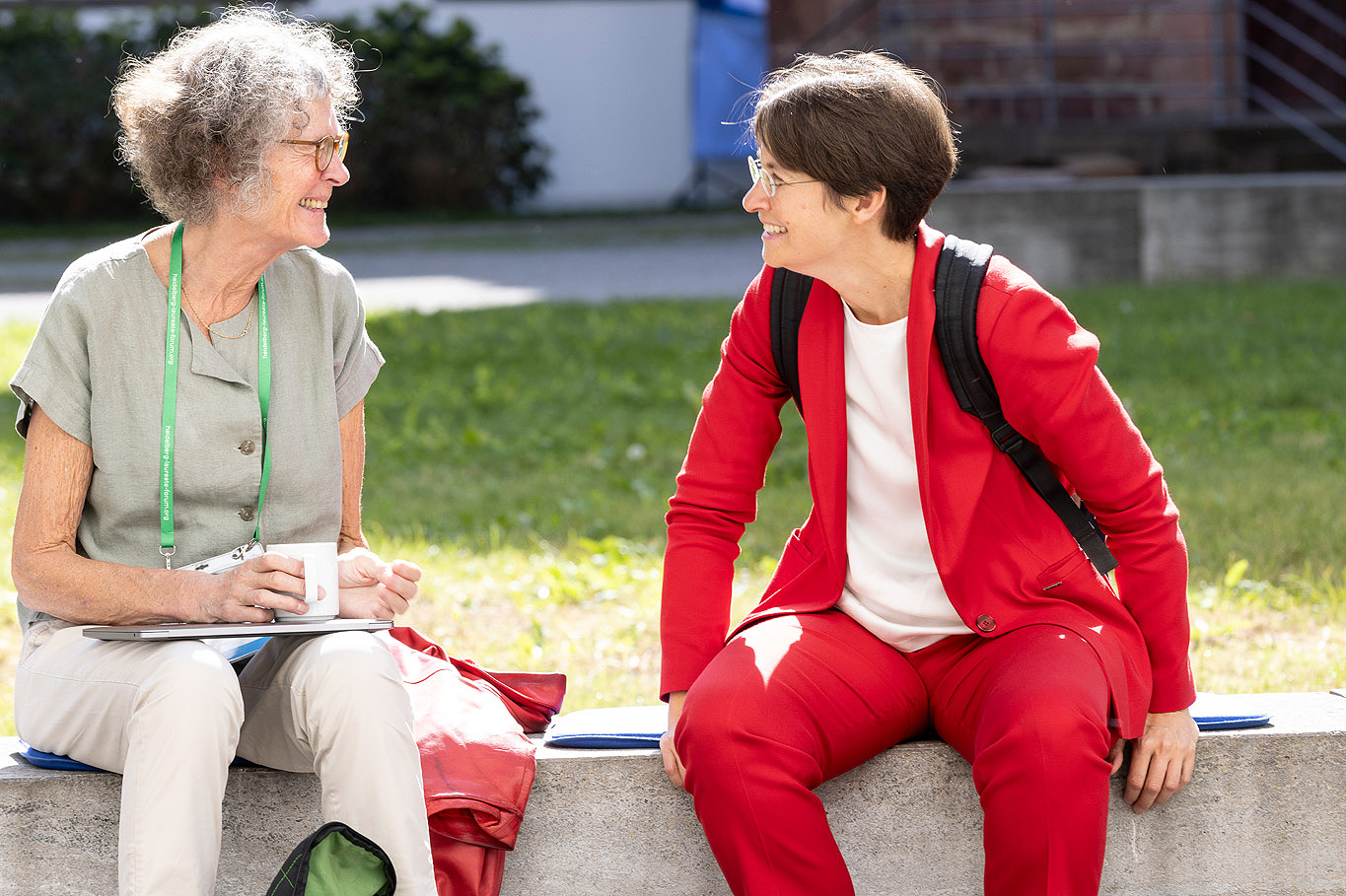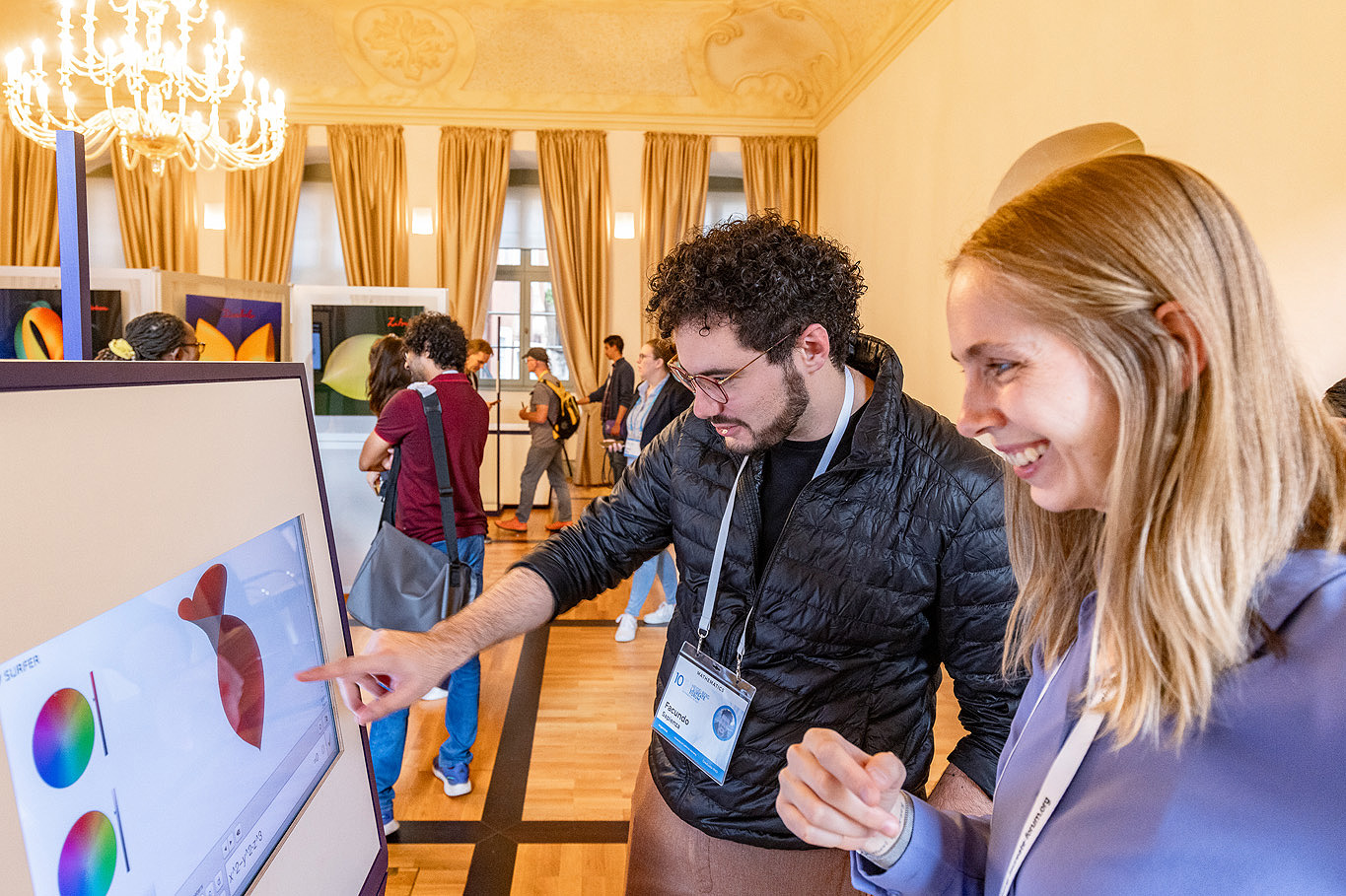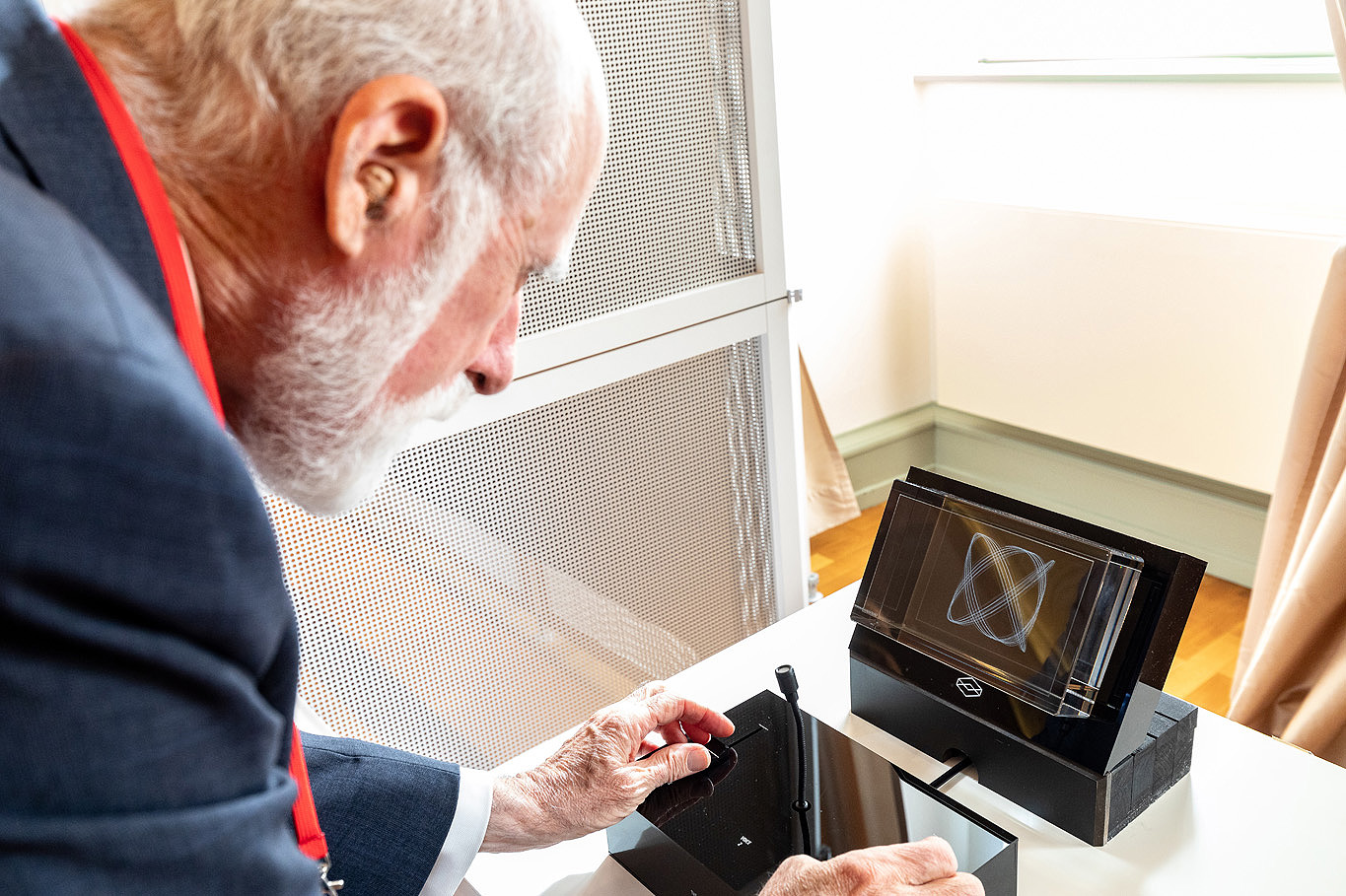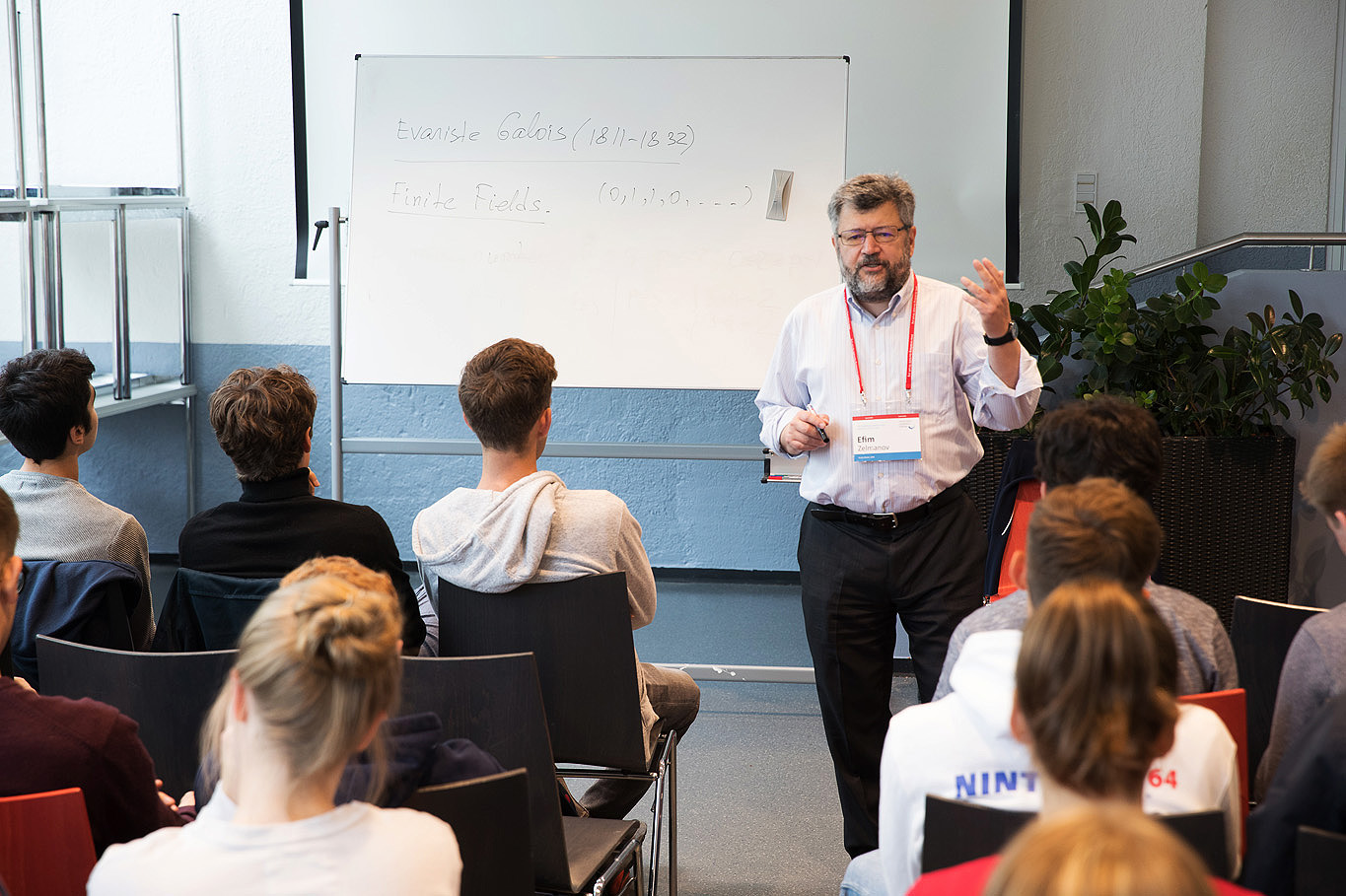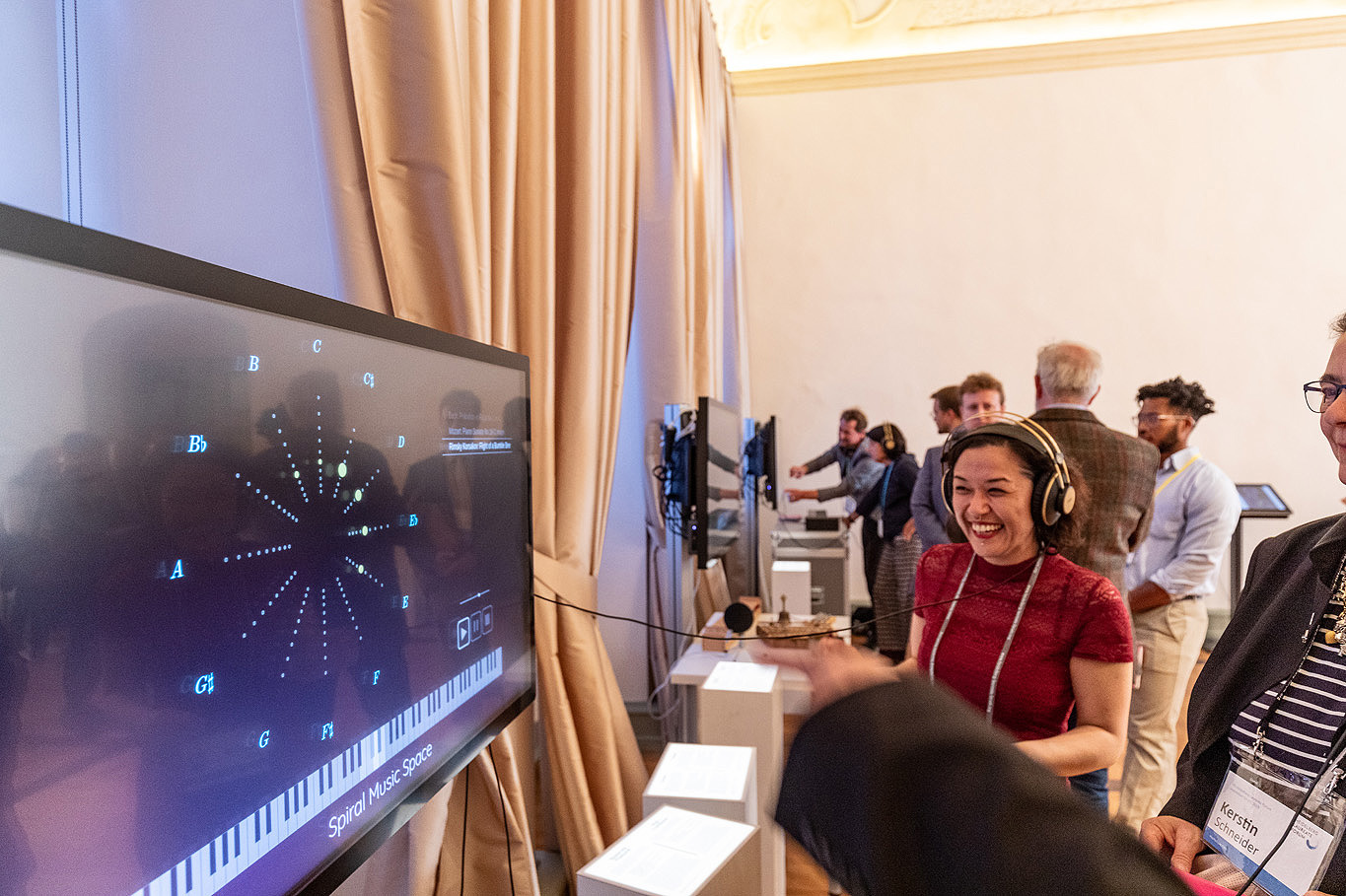Structure of the Forum
One of the essential ingredients of scientific progress is open communication, which – when combined with time and allowed to flourish – can cultivate meaningful connections. At the HLF, 200 international young researchers in mathematics and computer science spend a week interacting and engaging with some of the foremost luminaries of their fields in a mix of scientific and social program elements. The HLF’s unique structure allows laureates and young researchers to engage with one another in an informal and unmediated setting that fosters stimulating intellectual discourse and encourages collaboration.
Lectures and Panels
The HLF features a large number of plenary lectures held by laureates on subjects related to their research and fields of expertise, as well as panel discussions between laureates and distinguished experts. Each year, to signify the bond between the HLF and the Lindau Nobel Laureate Meetings, a Nobel Prize recipient holds a special Lindau Lecture. In addition, the HLF also employs shorter formats intended for a more focused approach, such as the dynamic Spark Sessions and one-slide Lightning Talks. Unique to each HLF is the Hot Topic session, where a subject that is prominent in public discourse and holds significant implications for the public at large is unpacked and discussed from a variety of perspectives by a panel of experts.
Master Classes and Workshops
For breakout sessions, the HLF features Master Classes – smaller lectures for a more specialized audience – as well as interactive Workshops on a wide range of topics, whether it is honing one’s skills at science communication, dipping one’s toes into a new interdisciplinary subject or simply practicing collaboration through improvisational theater.
Poster Flash and Session
The Poster Flash offers postdocs or graduate PhD students the opportunity to concisely explain their research projects – presenters summarize their research projects in two-minute presentations on stage. Prior to the Poster Flash, all presenters are coached by a professional on how to clearly and concisely communicate their research focus to a large audience.
During the subsequent Poster Session, participants can browse the various posters and engage with the young researchers directly to discuss their work. The posters also remain on display throughout the week of the HLF.
Career Guidance
Young researchers can take part in a compelling session where they receive practical guidance and learn helpful tools to shape their future. Experts and alumni from academia and business provide insights into their careers.
During the week of the HLF, attending young researchers are also given the opportunity to learn about some of the renowned scientific institutes and companies in Heidelberg and the surrounding region. This helps young researchers expand their professional network and learn more about the wide range of employment opportunities for mathematicians and computer scientists.
Interacting with Laureates and Peers
In addition to the scientific program, attendees are given the opportunity to engage with each other in an informal setting. Frequent coffee breaks, themed lunch tables and varied evening activities provide participants with ample time to exchange ideas and carry on scientific discussions begun earlier in the day. At the core of it all is an informal atmosphere that helps break the ice and get attendees engaging with each other and on track to making lasting connections. While young researchers are always encouraged to interact with attending laureates throughout the week, a special time slot is also provided where they have the opportunity to engage directly with each other in a small group setting. These sessions are exclusive to young researchers and provide a more personal atmosphere for effective discussion.
Outreach
Each year, as part of the HLF program, the HLFF organizes a public exhibition centered on mathematics or computer science in Heidelberg’s Old Town. To further inspire the next generation of young scientists, laureates attending the HLF also visit local high schools to speak with students and answer questions about working in mathematics and computer science.

